PHOTOS: Incredible Transformation of City Centre Osijek Art Nouveau Villa
January 16, 2021 – An incredible Osijek Art Nouveau villa, situated in the heart of the city centre, it took local entrepreneur Branko Ostović almost 10 years to buy the famous, decaying Villa Batory. In just 18 short months he has returned the building to its former glory
Every town has a grand old ruin. It's the place residents drive past and dream of owning. “If I had a million Euros, I'd buy that place, bring it back to its best and live like a king”
Croatia has more of these kinds of buildings than most. For hundreds of years these lands were presided over by elite European families and royalty who used their considerable wealth to build castles, stately homes, hunting lodges and villas. After the Second World War, such buildings were seized by the state and, for numerous reasons, many fell into disrepair. One such building was Villa Batory, a city centre Osijek Art Nouveau villa.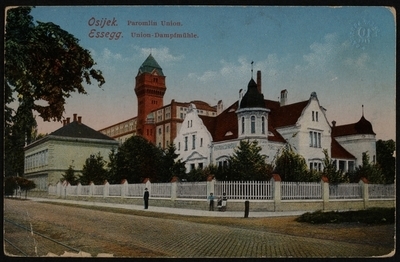 How Villa Batory originally looked, not long after its completion in 1906
How Villa Batory originally looked, not long after its completion in 1906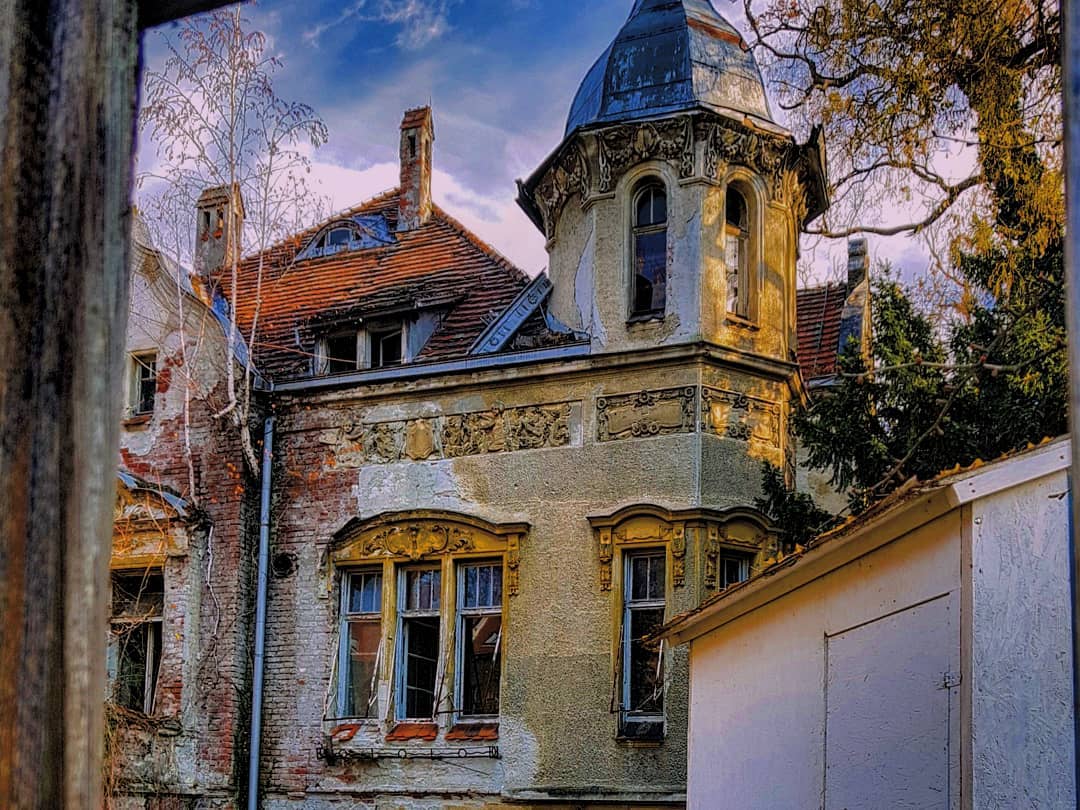 The state of disrepair the villa fell into over the last 20 years - it still looked impressive, if unloved © Dvorci, utvrde i stari gradovi Facebook / Aleksandra Petrović
The state of disrepair the villa fell into over the last 20 years - it still looked impressive, if unloved © Dvorci, utvrde i stari gradovi Facebook / Aleksandra Petrović
For over 20 years, this incredible Osijek Art Nouveau villa has lain empty. Prominently positioned on the corner of Radićeva and Reisnerova streets, right in the heart of Osijek, the building has drawn admiring stares ever since it was built in 1906. Even while empty and left slowly decaying, its impressive towers, intricate stone and plasterwork and considered architectural details ensured this Osijek Art Nouveau villa was never far from the daydreams of anyone who walked by.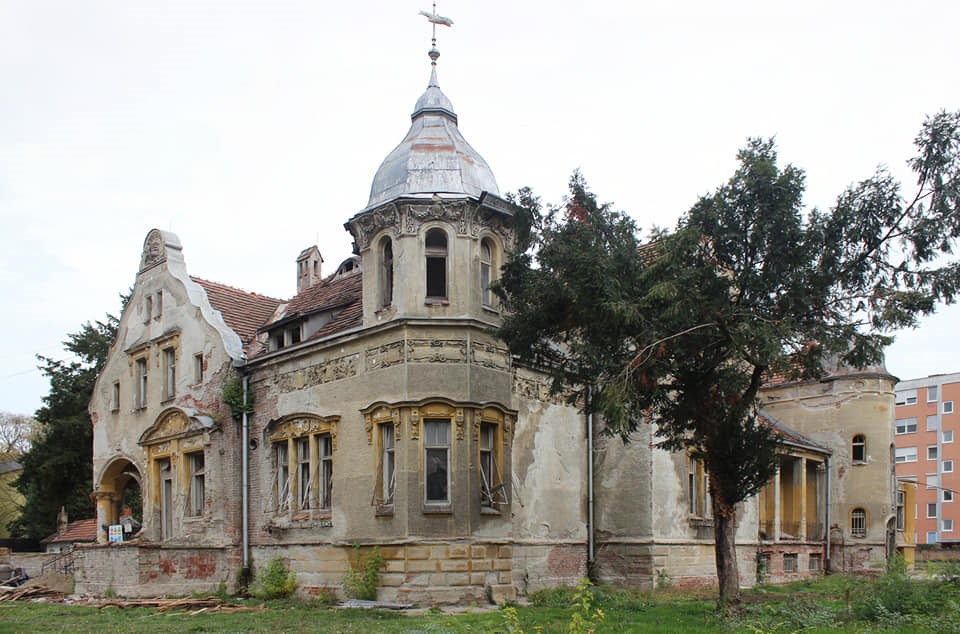 An incredible architectural gem, wasting away, until now... © Croatian Heritage Facebook
An incredible architectural gem, wasting away, until now... © Croatian Heritage Facebook
One such daydreamer was Branko Ostović. Only, being one of Osijek's successful entrepreneurs, Branko has perhaps more get-up-and-go than many idle dreamers. For him, daydreams were simply not enough. For almost 10 years he tried to negotiate the purchase of the receding Osijek Art Nouveau villa. Progress was difficult, given the listed nature of the property, past disputes over ownership and the building lying within the ownership of the local hospital, who had no funds to renovate and required state permission to sell.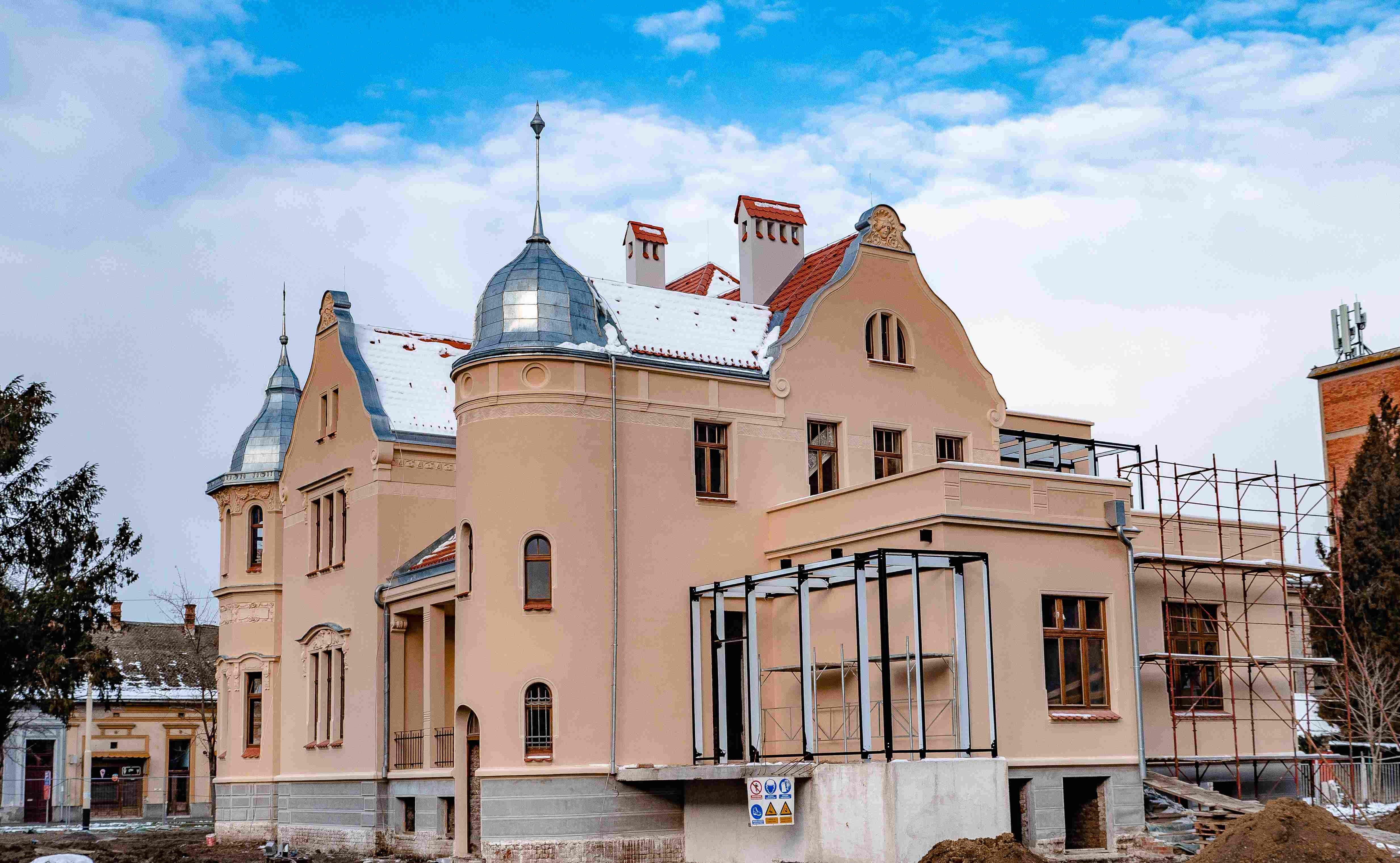
Finally, in 2019, Branko Ostović successfully assumed ownership of the Osijek Art Nouveau villa. In just 18 short months – and a considerable financial investment – he has not only halted the building's decline but has restored its outer facade so that Osijek residents can once again take pride, rather than pity, in this city centre architectural gem. He has renamed the villa 'Mimi', after his wife, a popular local teacher.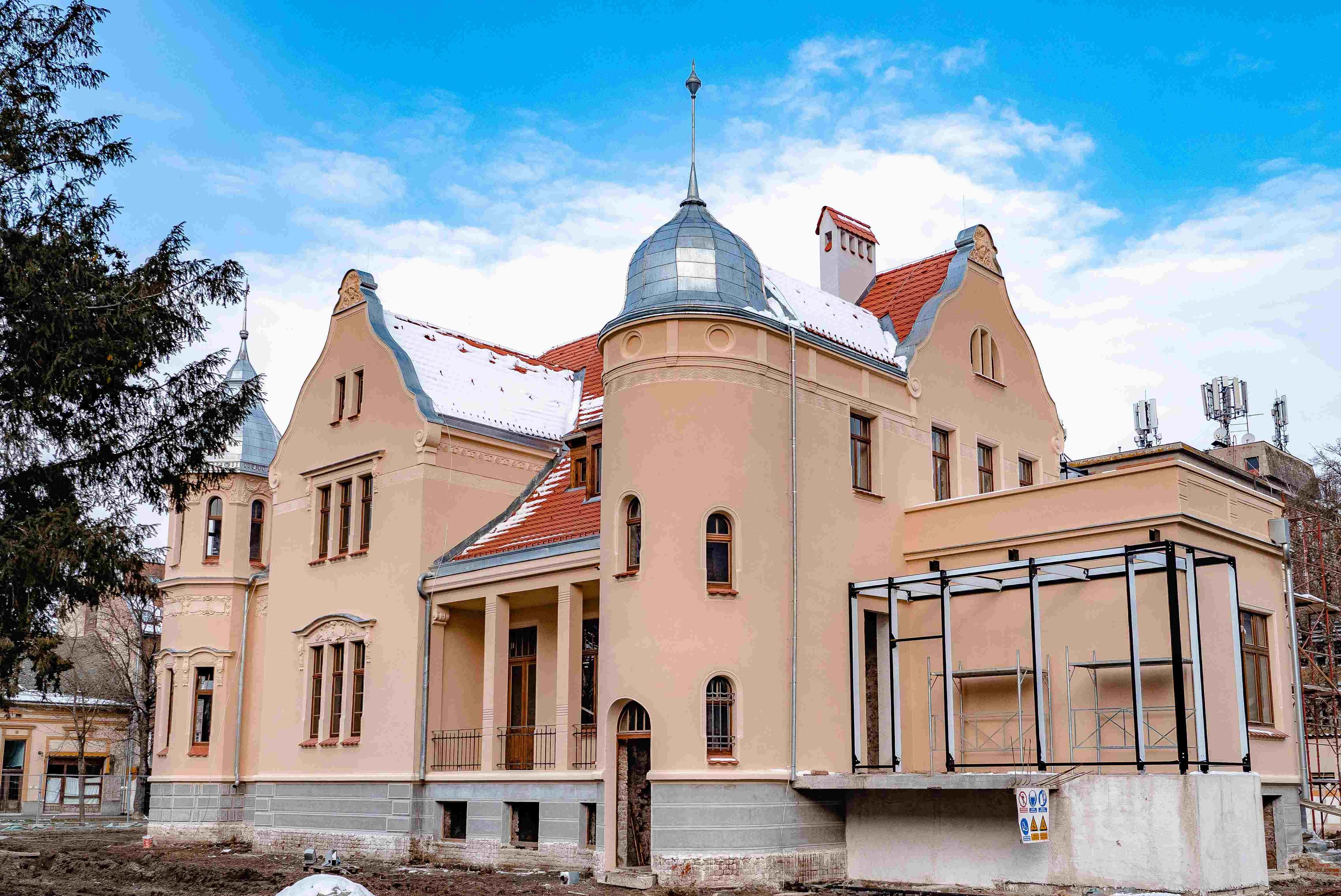
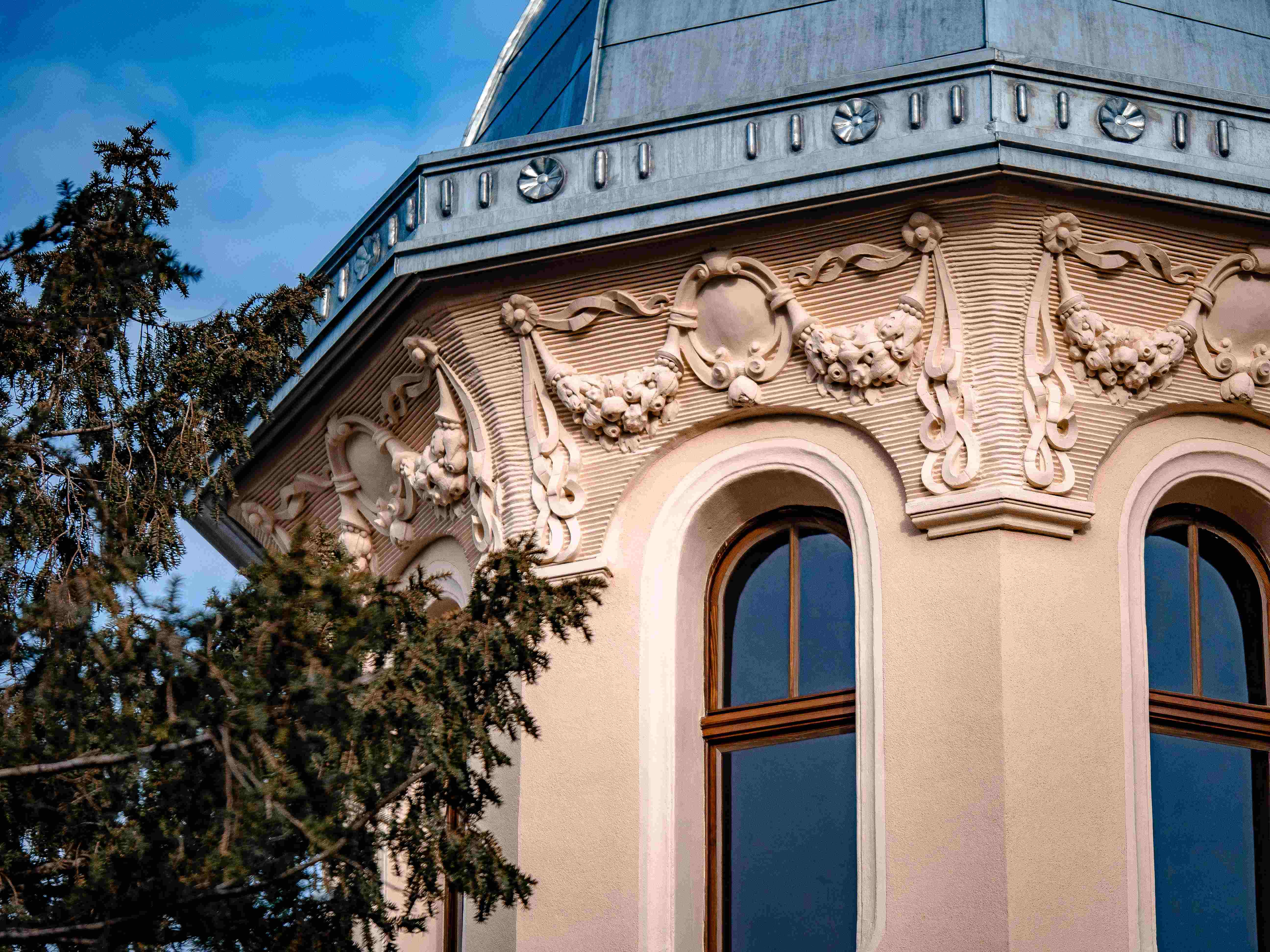
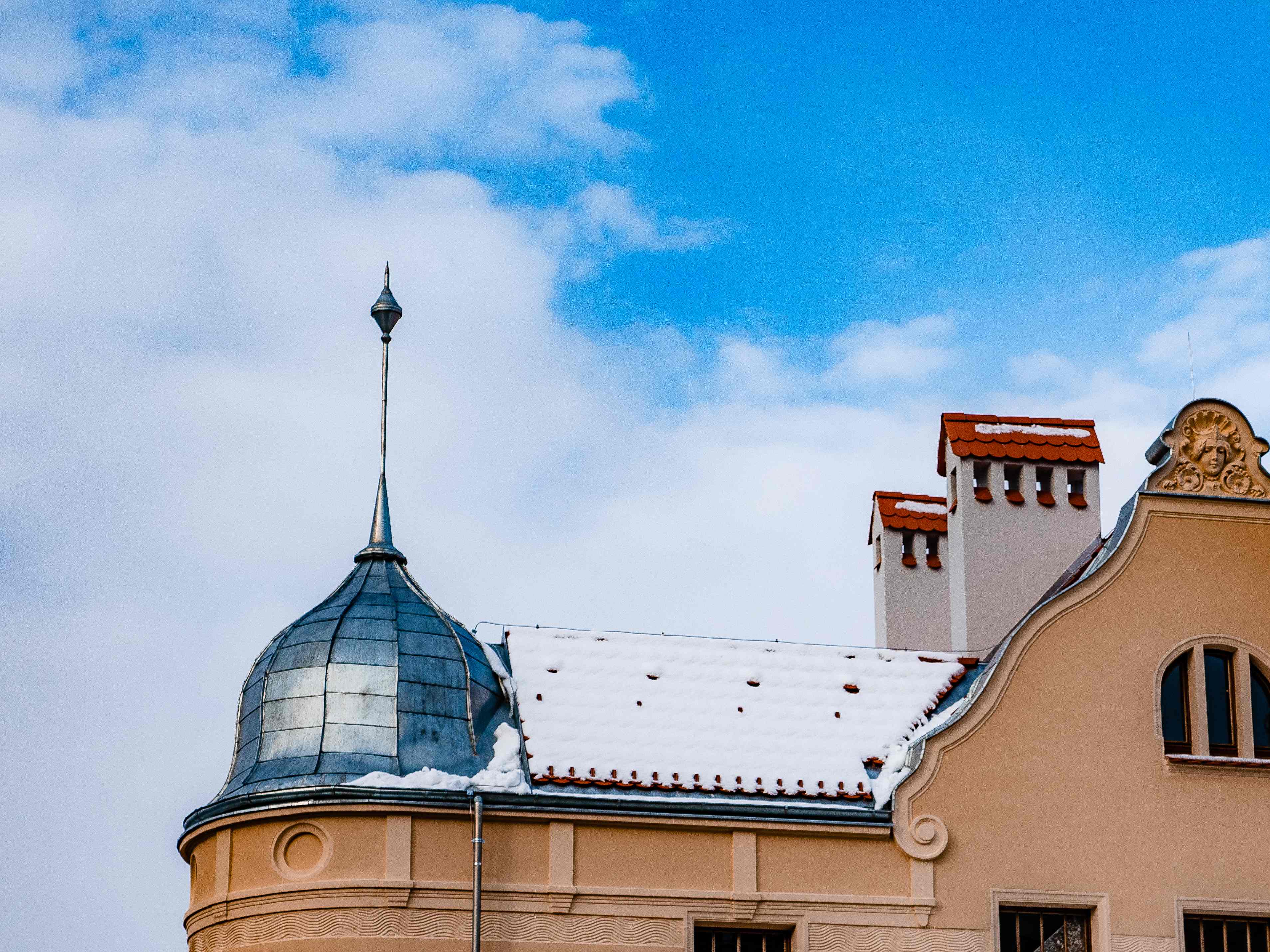
The villa exists within grounds that cover an enormous 3000 square metres. This is a considerable tract of land, given it is right in the heart of the city. It was built in 1906 as the villa of the manager of Paromlin Union (one of the largest mill plants in the area) by noted Osijek builder Otto Struppi. It is just one of a series of art nouveau gems that lie in this westerly section of the city.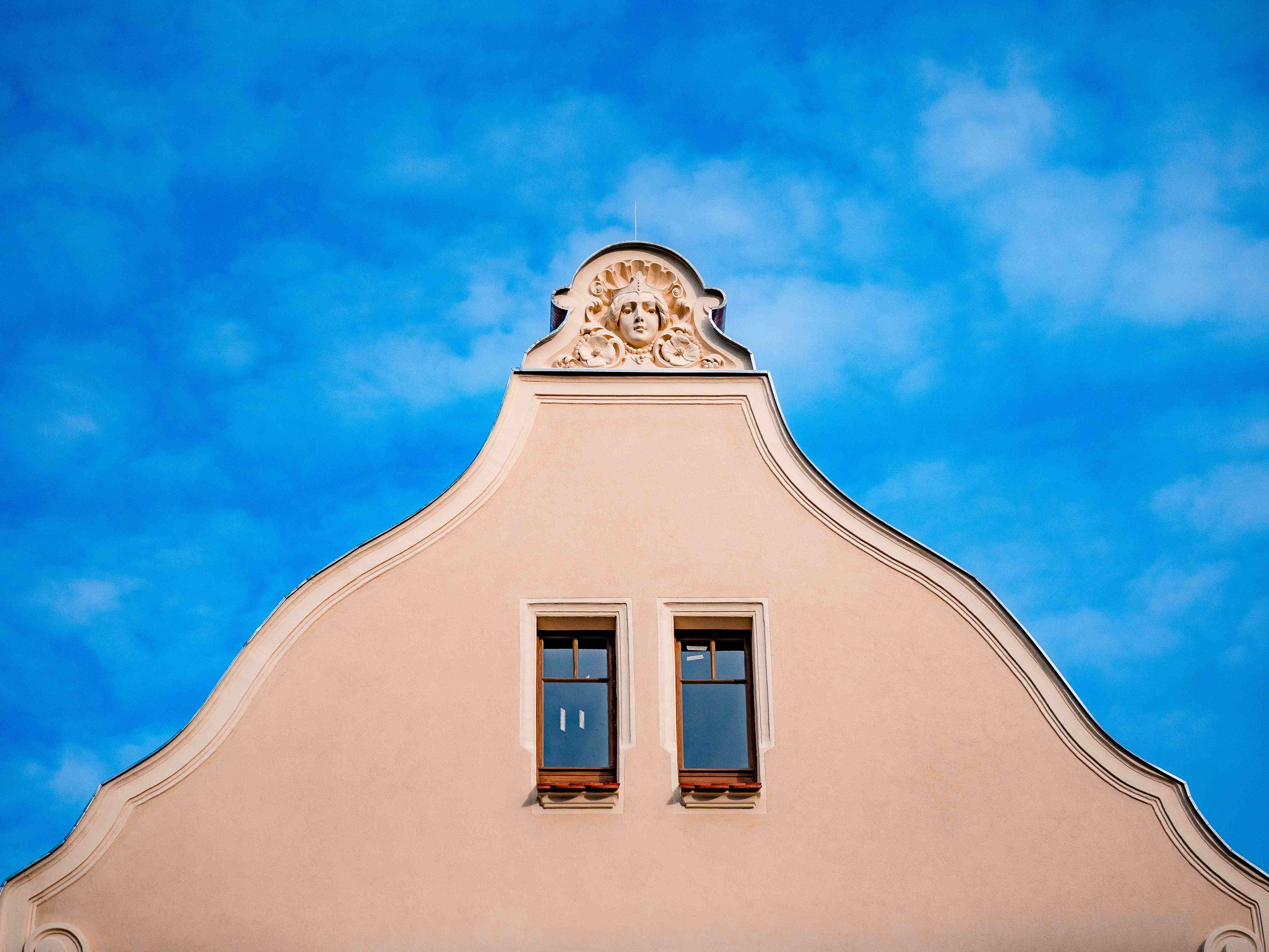

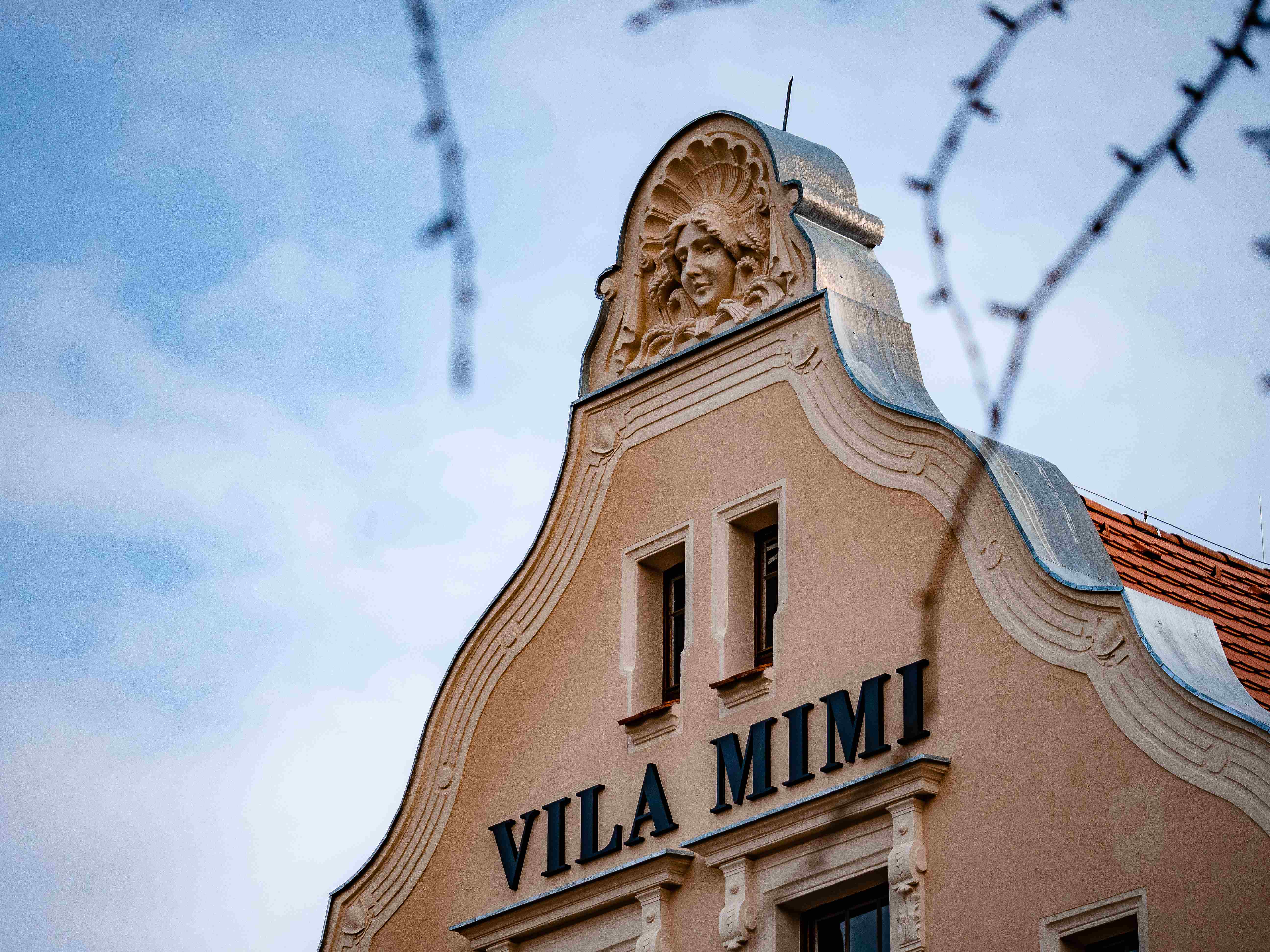
Throughout his attempts at purchasing the building, Branko Ostović had no real commercial plans of what he could do with the building. Recognised for its architectural worth, there are restrictions imposed by the state on how any renovation may treat the property. The interior cannot be altered in a way that would the property better suited to contemporary living accommodation. Ostović's main motivation for buying it was simply to stop the rot and return it to its former glory.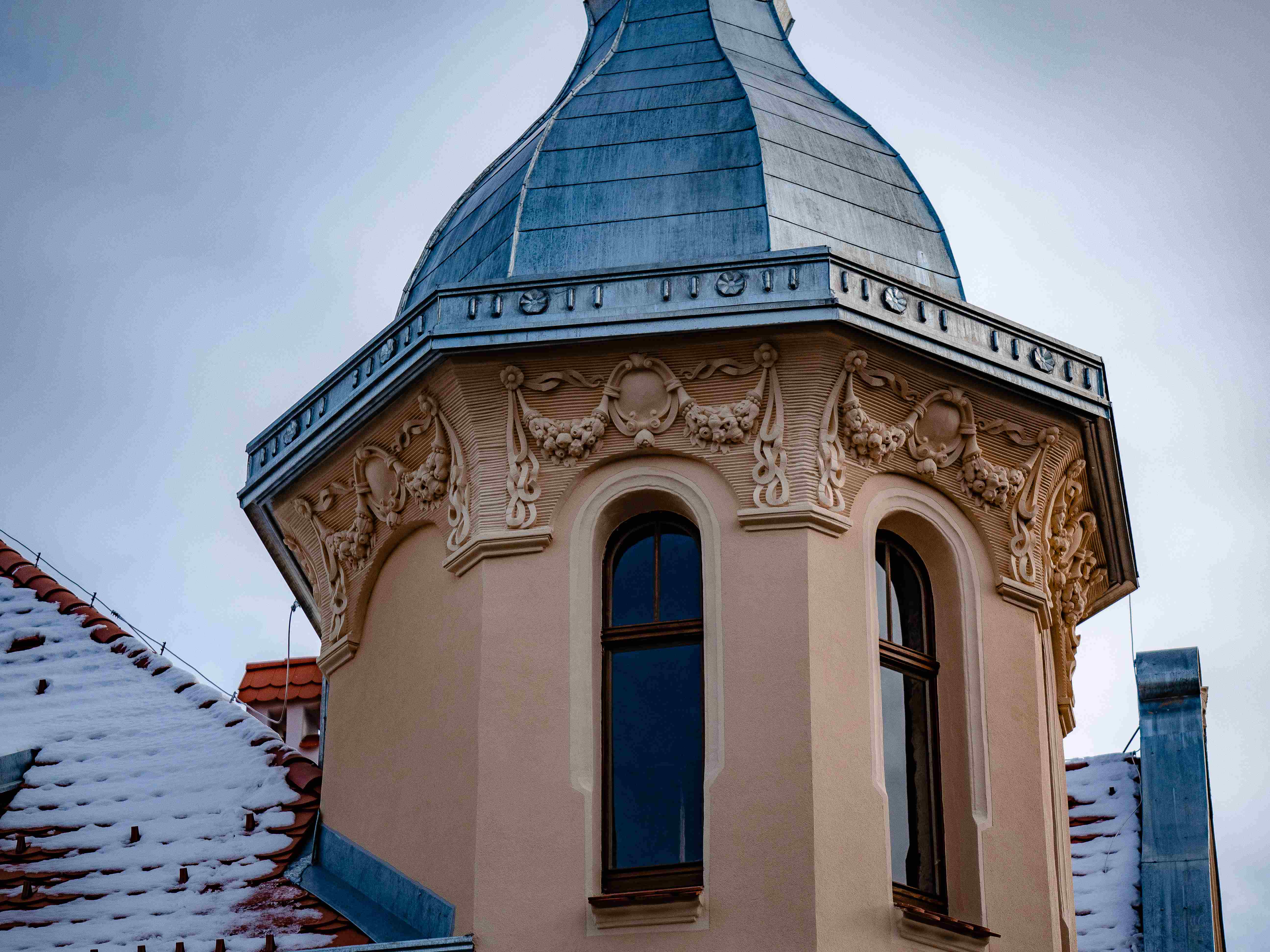
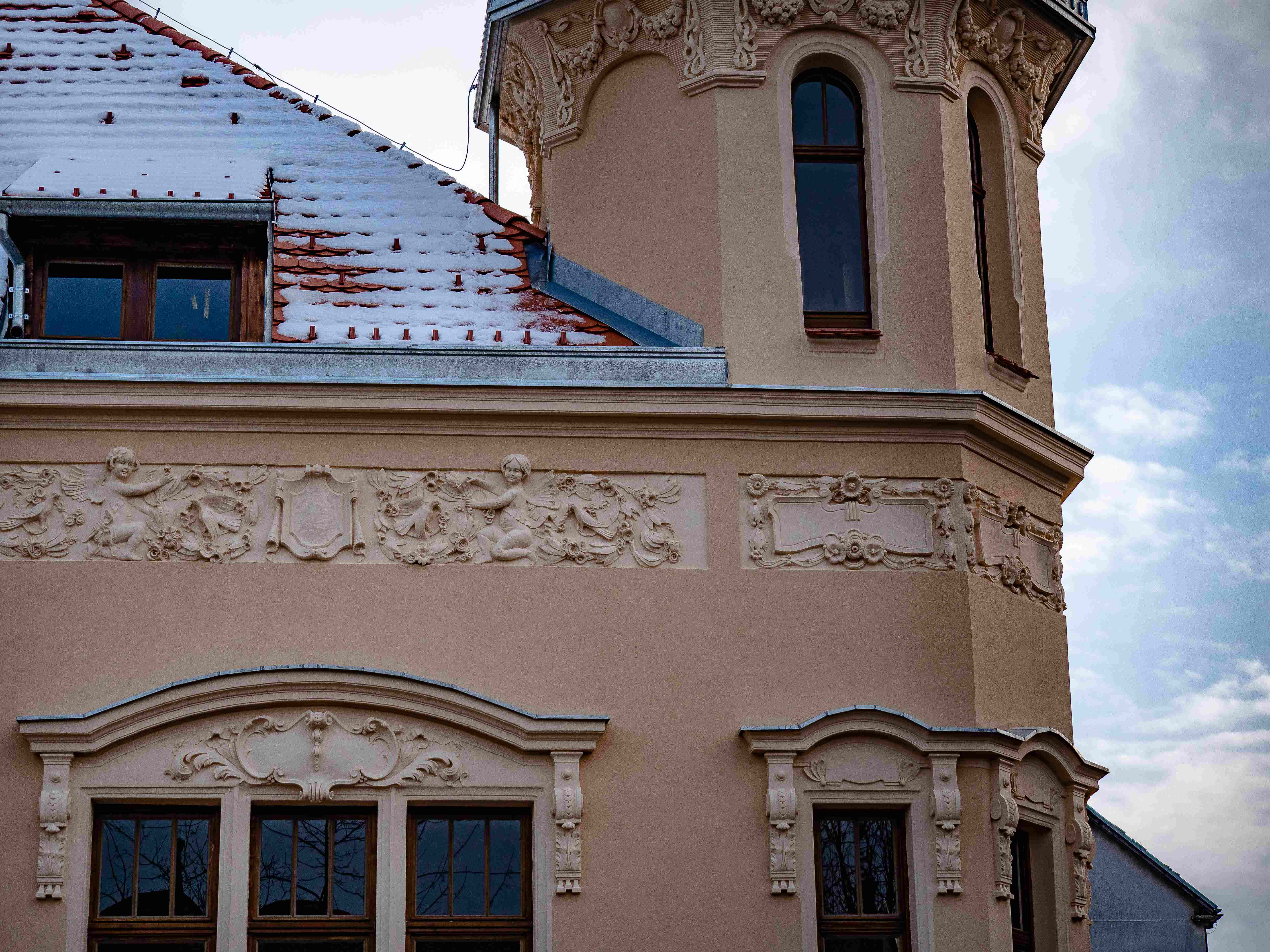
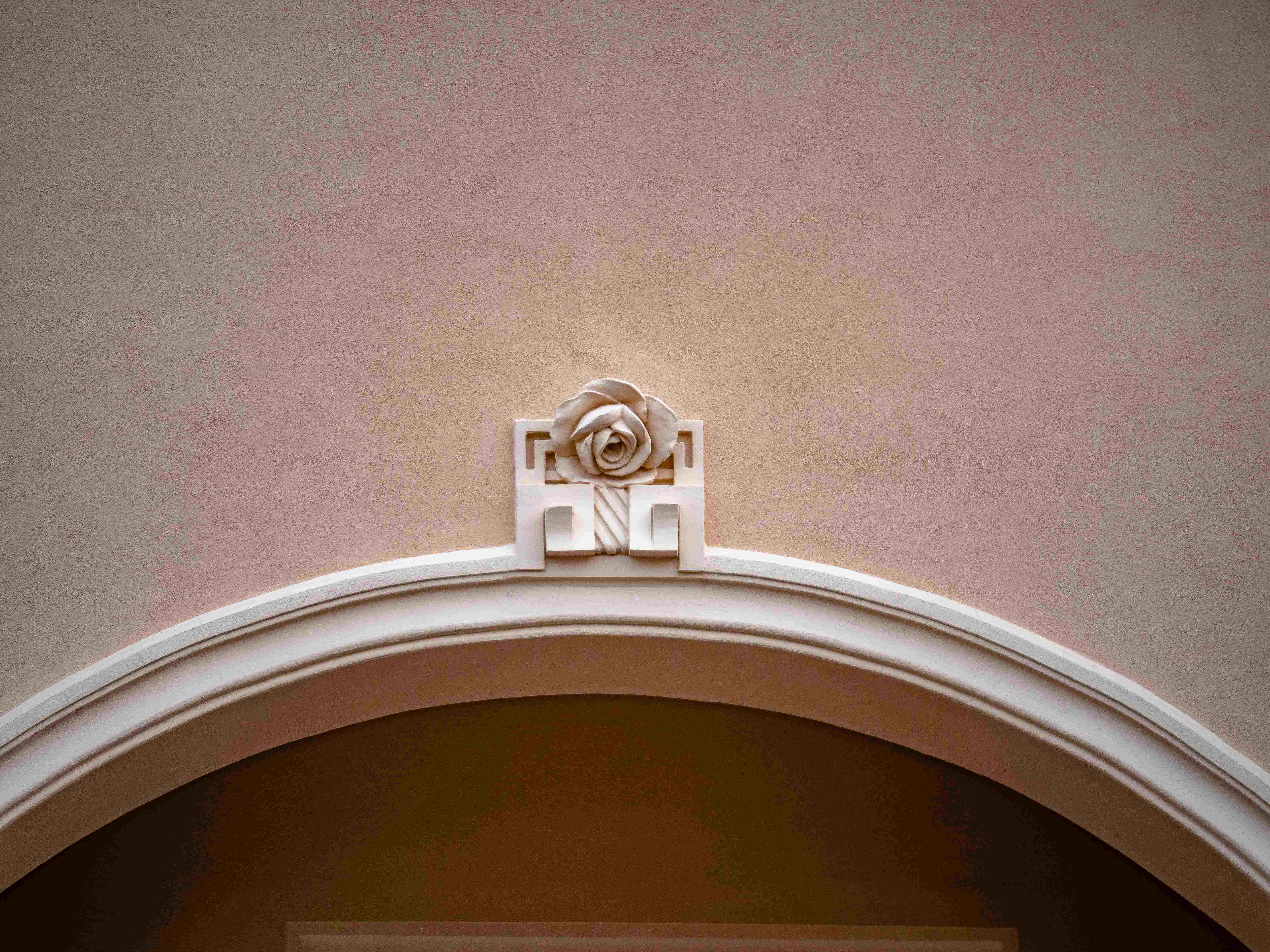
He has so far invested some 40 million kuna in the restoration and 5 million kuna in the initial purchase. 95% of work on the exterior is complete, although further investment is needed for the interior. Focussed on completing the long-held project, Ostović still has no clear plans for the building and no potential tenants. He imagines the Osijek Art Nouveau villa might make a good home for a polyclinic or a hotel.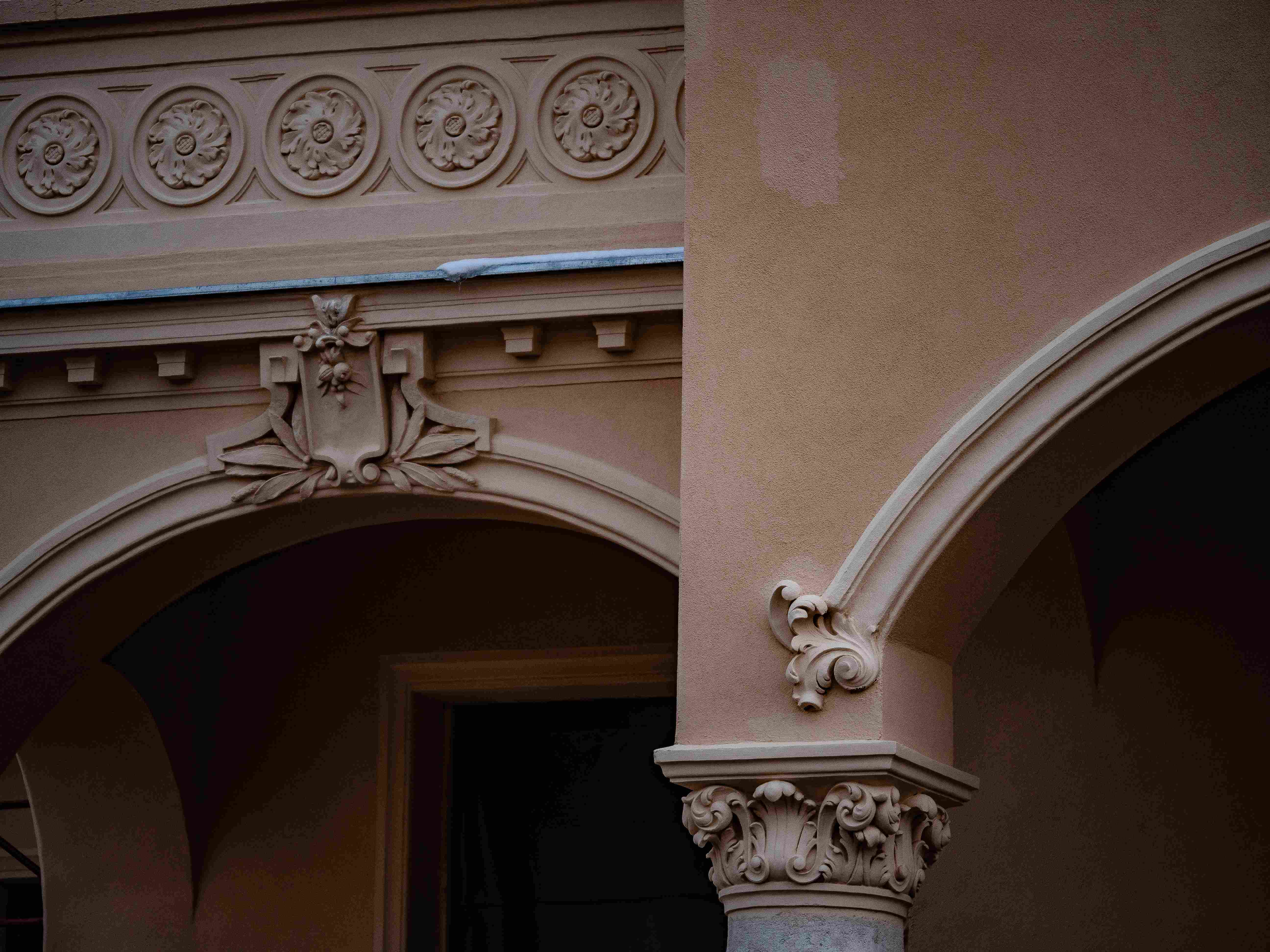
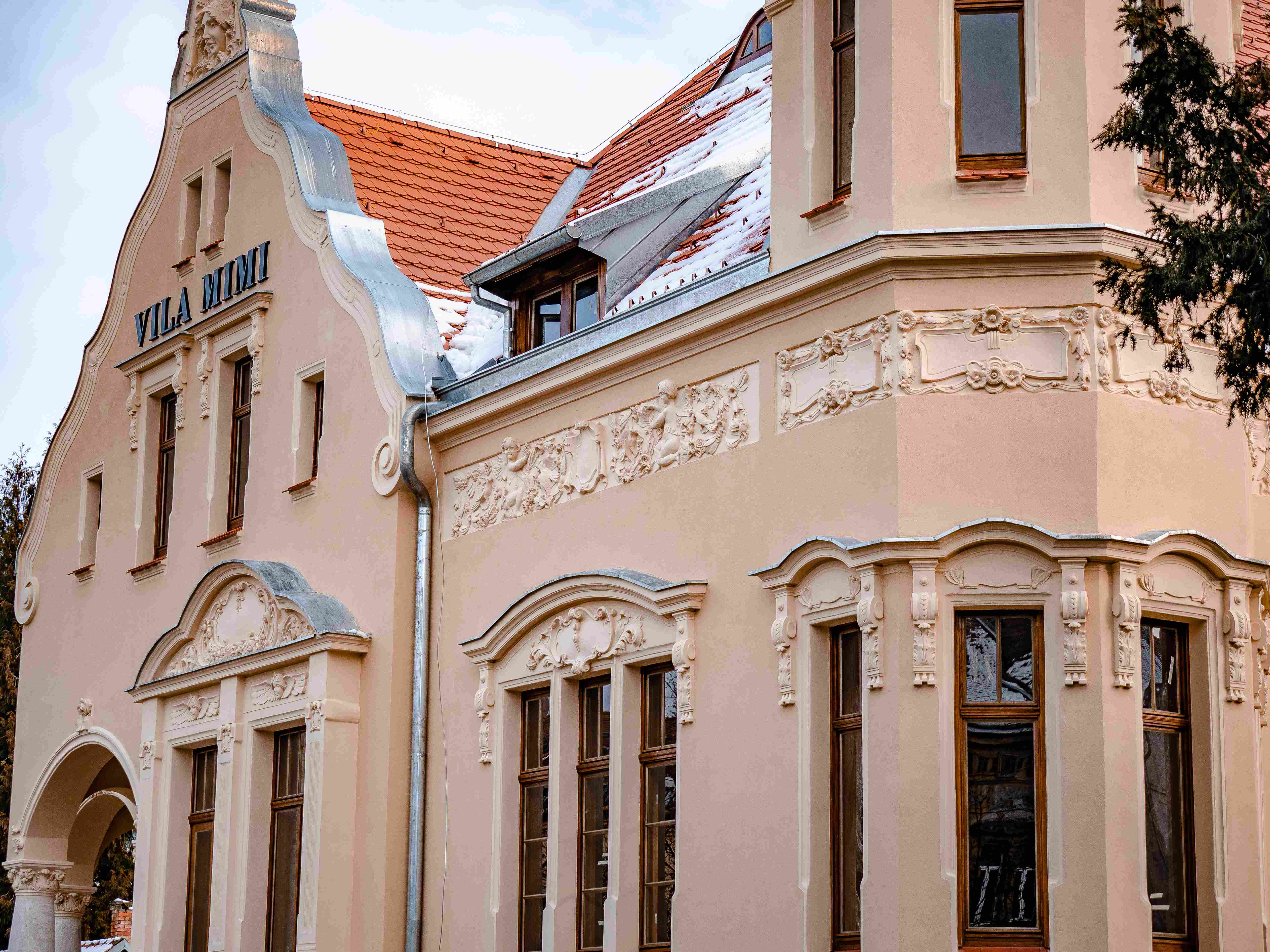
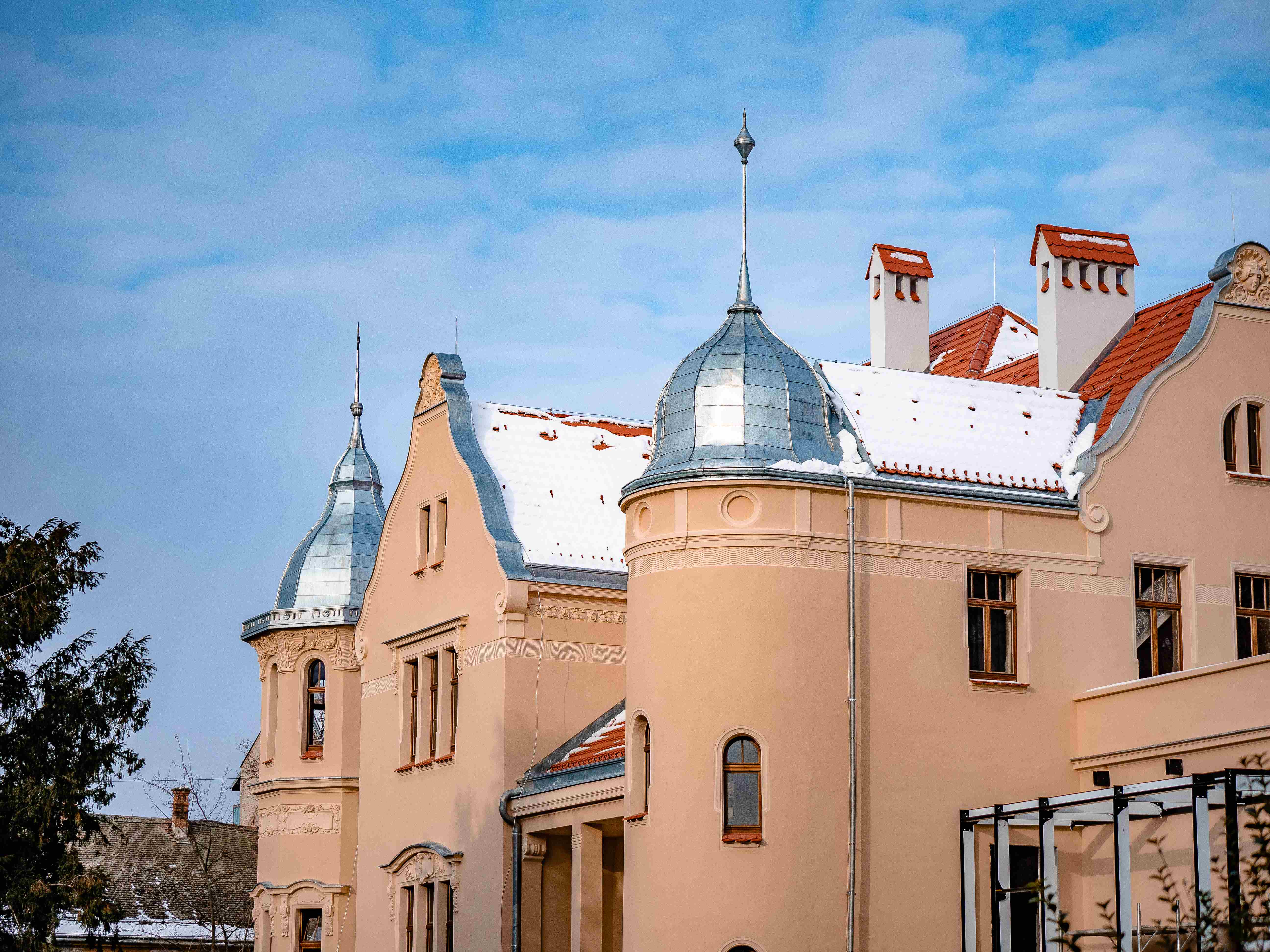
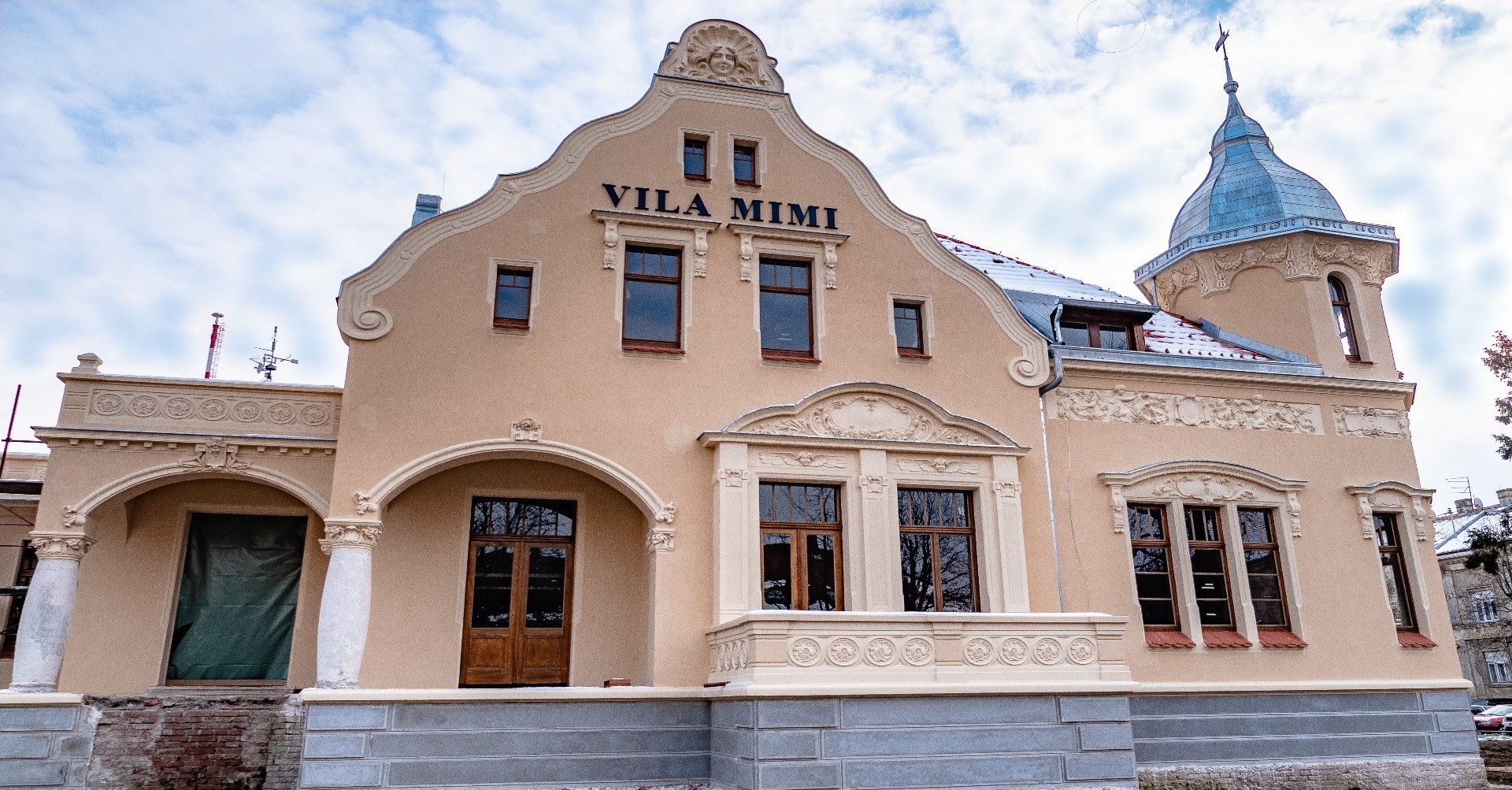
All contemporary images of the renovated Villa Mimi © Damir Janković
All Full-Time Osijek and Baranja Students Get Free Train Travel
January 9, 2021 – From this year, full-time Osijek and Baranja students can get free train travel any time throughout their own county and for travel to educational centres anywhere in Croatia, in a new deal struck by the county and the national train operator
Once a sea bed, the vast flatlands of Slavonia are perfect for farming. At one time, this area was the breadbasket for much of Yugoslavia. It really wasn't so long ago that many folks left dry and dusty Dalmatia in search of employment and new lives on this fertile ground. Now, it's the other way round - Slavonian youth travel to the coast each summer in search of seasonal work. Others move to Ireland, Germany, Austria. Slavonia is losing many skilled younger people at an alarming rate. Increased mechanisation has reduced the need for labour in the area's agriculture. And, besides, most Slavonian youths are these days educated to a degree where their ambitions are greater than joining local agricultural endeavours.
In an area with limited possibilities, limited opportunities, education lies at the heart of survival in Slavonia. Local authorities know this and try to facilitate education as best they can. It is to that end that those in the Slavonian county of Osijek and Baranja have struck a deal with Croatia's national train operator to offer free train travel to all full-time Osijek and Baranja students.
Agreed upon at the end of last year, the scheme was implemented on 1 January 2021. Osijek and Baranja County has agreed to co-finance journeys for full-time Osijek and Baranja students who study not only within the county itself but across the whole of Croatia.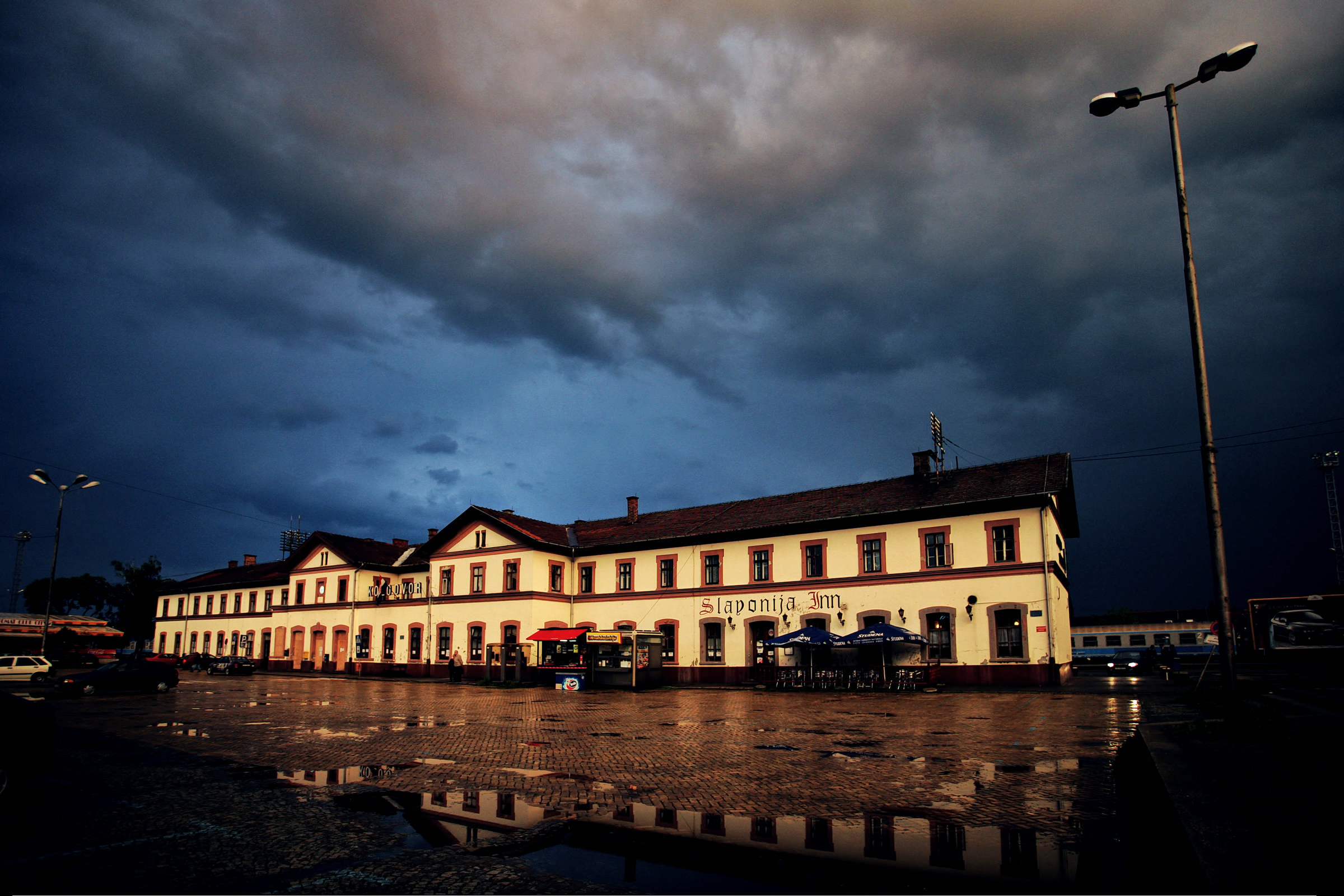 Osijek train station © Romulić & Stojčić
Osijek train station © Romulić & Stojčić
Monthly tickets for travel within the county already held a discount of up to 65 percent given to full-time students by the train operator, depending on the route. The County has now agreed to pay the remainder of the monthly ticket for all full-time Osijek and Baranja students. To meet the requirements of this deal, the departing and destination stations must both be in Osijek-Baranja County. The free monthly ticket allows an unlimited number of trips on the route, meaning that Osijek and Baranja students can also use the train for free on recreational journeys within the county.
The second deal sees the County co-finance 50% of journey costs for full-time Osijek and Baranja students who study elsewhere in Croatia, with the train operator HŽ agreeing to grant a discount to cover the other 50 %.
In order to obtain a free (monthly or individual) ticket, it is necessary to first obtain a certificate from their Administrative Department for the Economy. To get the certificate, Osijek and Baranja students must submit a copy of their identity card, a certificate of full-time study and two completed application forms (these can be found on the county's website www.obz.hr). Requests can be made in person or by mail (Osijek-Baranja County, Administrative Department for Economy, Županijska 4, Osijek or on the e-mail: This email address is being protected from spambots. You need JavaScript enabled to view it.
Free tickets can thereafter be bought by Osijek and Baranja students at the box office, prior to travel, or on the train itself, upon producing the relevant and needed documentation.
Not Discouraged by Earthquake, Osijek Luxury Construction Continues
January the 5th, 2021 - 2020 was the year of an unprecedented global coronavirus pandemic, the Zagreb earthquake, tremendous economic downturn and to mark the end of it, another horrific earthquake in central Croatia which affected a large area. It wouldn't be a lie to say that last year was a disaster for almost everyone in some way or another, but despite the uncertainty and difficulties which continue to reign strong, Osijek luxury construction continues.
Eastern Croatia is known for having been seriously neglected for many, many years. Much like central Croatia and the areas which were hit by the most recent earthquakes, Slavonia and Baranja have become unfortunately synonymous with emigration and a very poor demographic picture. Could things be at least partially remedied for the city of Osijek? With the Osijek luxury construction project going on in spite of the times, it's a possibility.
As Poslovni Dnevnik writes, the Osijek luxury construction project, Pampas, is continuing precisely as planned during a time when many an investment has been shelved for better days. The backbone of the most modern football building in Croatia can be seen on the banks of the Drava river.
Osijek's football arena, with 12,900 fully covered seats, which in the future will be able to expand to 15,000, will be special to Croatia in very many ways. When you enter the building at the level of the field itself, fans will be so close their breath will be felt on the players' skin because the first rows of the stands will be only five or six metres away from the field, according to a report from Vecernji list.
At the same time, the first two rows of grandstands will boast luxury seats with special ticket prices, while above the last row of grandstands, there will be the so-called sky promenade where spectators will be able to enjoy the rich gastronomic offer, and at the same time they will be able to watch the match unhindered.
For the latest travel info, bookmark our main travel info article, which is updated daily.
Read the Croatian Travel Update in your language - now available in 24 languages
HNL Round 16 Recap: Winter Season Ends with Dinamo and Osijek on Top of Table
December 21, 2020 - The 16th round of the Croatian First League was held on December 19 and 20, 2020. Only three games were played in the winter season's final round, putting Dinamo and Osijek on the top of the table.
Osijek v. Sibenik (1:0)
Osijek and Sibenik opened the 16th round on Saturday, December 19, 2020, at City Garden Stadium.
The only goal of the match came in the 17th minute, thanks to a stellar header by Skoric for the 1:0 Osijek win.
Osijek is currently in 2nd place with 33 points and 16 games played, while Sibenik is in 7th with 13 and only 14 games played.
Dinamo v. Varazdin (4:0)
Dinamo and Varazdin met at Maksimir Stadium on Saturday, December 19, 2020.
A goal by Orsic in the 23rd and Petkovic in the 31st put Dinamo up at 2:0 at the half. A penalty awarded for Dinamo in the 79th minute scored by Petkovic made it 3:0, and Hajrovic secured Dinamo's victory in the first minute of added time for the final 4:0 result.
Dinamo is currently in 1st place with 33 points, however, with only 14 games played, while Varazdin is in 9th place with 12 points.
Hajduk v. Gorica (2:4)
Hajduk and Gorica closed out the 16th round on Sunday, December 20, 2020, at Poljud Stadium.
Dieye scored the first goal for Gorica for 0:1 in the 6th minute. Atanasov equalized for Hajduk in the 24th. A penalty was awarded to Gorica in the 53rd, which Lovric scored for 1:2. Diamanatakos scored for 2:2 in the 63rd.
Another penalty was awarded to Gorica in the 76th minute, putting them back in the lead for 2:3. Moro scored a final-minute goal for the 2:4 Gorica victory.
Hajduk is currently in 5th place with 17 points, though with only 14 games played, while Gorica is in 3rd place with 29 points and 14 games played.
Istra 1961 and Lokomotiva already played their last matches this year. They were supposed to meet at Aldo Drosina Stadium in the 16th round, but the match was postponed due to COVID-19 infections in the Istra squad. Istra also had to postpone their two previous games against Sibenik in the Cup and the championship.
HNS also postponed the 16th round match between Slaven Belupo and Rijeka.
The Koprivnica club has four positive COVID-19 cases, and the competent epidemiologist determined a measure of self-isolation for three other players because the contacts of the infected were close. According to the decision of the HNS Competition Commission, any team that has six or more players in self-isolation can request a postponement of the match.
Rijeka will welcome the winter break with 20 points in 4th place, with five games behind, while Slaven Belupo is 6th with 17 points and one game behind.
The match between Slaven and Rijeka was supposed to be played on Sunday, December 20.
You can see the full HNL table HERE.
To read more about sport in Croatia, follow TCN's dedicated page.
HNL Round 15 Recap: Rijeka and Dinamo Draw, Osijek and Hajduk Suffer Heavy Away Defeats
December 14, 2020 - The 15th round of the Croatian First League was held on December 12 and 13, 2020. This round featured an exciting derby at Rujevica, which saw Rijeka and Dinamo draw, while Osijek and Hajduk suffered two heavy away defeats.
Gorica v. Osijek (4:1)
Gorica and Osijek opened the 15th round on Saturday, December 12, 2020, in Velika Gorica.
Dieye was the first to score for Gorica in the 13th minute for the 1:0 lead, which was the result going into halftime. An equalizer by Mierez in the 49th gave Osijek hope before Kalik scored two goals for Gorica in the 54th and. 65th for 3:1. Mitrovic scored the final goal of the game in the 77th minute for the final 4:1 result.
Gorica is currently in 3rd place with 26 points, while Osijek is in 2nd with 30.
Varazdin v. Hajduk (4:2)
Varazdin and Hajduk met on Saturday, December 12, 2020, in Varazdin.
Posavec was the first to score for Gorica in the 4th minute for the early lead. Grgec increased Varazdin's lead in the 32nd minute for 2:0 at the half. Senic increased Varazdin's lead further in the 58th minute for 3:0. It wasn't until the 72nd minute that Caktas gave some hope to Hajduk for 3:1 and scored another goal five minutes later for 3:2. However, a final minute goal by Obregon locked in Varazdin's 4:2 victory.
Varazdin is currently in 9th place with 12 points, while Hajduk is in 5th with 17.
Lokomotiva v. Slaven Belupo (2:1)
Lokomotiva and Slaven Belupo met on Sunday, December 13, 2020, in Zagreb.
Prce put Belupo in the lead in the 38th minute for 0:1 at the half, though a quick equalizer at the start of the second by Tuci made it 1:1 in the 51st. Ibrahim put Lokomotiva in the lead with a goal in the 72nd minute for 2:1, which was the final result of the match.
Lokomotiva is currently in 8th place with 12 points, while Belupo is in 6th with 17.
Rijeka v. Dinamo (2:2)
Rijeka and Dinamo closed out the 15th round on Sunday, December 13, 2020, at Rujevica.
Dinamo took the very early lead with a goal by Ivanusec in the 1st minute of play for 0:1 Dinamo. Galovic equalized for Rijeka in the 28th minute, before Menalo put Rijeka in the lead in the 35th for 2:1 at the half. Lauristen scored Dinamo's equalizer in the 82nd minute for 2:2. which was the final score of the match.
Rijeka is currently in 4th place with 20 points, while Dinamo is in first place with 30.
The 15th round match between Sibenik and Istria in 1961, which was to be played on Sunday, December 13 at 3 pm at Šubićevac, was postponed due to players infected with COVID-19 on both teams.
"After testing the complete teams of HNK Sibenik and NK Istra 1961 on December 3, coronavirus was confirmed in a large number of players in both clubs. Since the players have to be in isolation for at least ten days, it was impossible to play the 15th round match at the previously scheduled time," announced Sibenik.
Sibenik and Istra 1961 should also meet in the Cup at Šubićevac, which has been moved a day forward and is scheduled for December 15 at 3 pm.
You can see the full HNL table HERE.
To read more about coronavirus in Croatia, follow TCN's dedicated page.
Meet Špajz: Youngest Entrepreneur in Osijek Conquers with Healthy Jars of Soup
December 8, 2020 – In a sea of sausages and bacon, the specialties of Slavonia where she grew up, Martina Završki dared to do something different in her homeland and sell healthy jars of soup. With her start-up symbolically named Špajz (pantry), she became the youngest entrepreneur in Osijek.
After returning from Ireland and realizing the grass is not greener abroad, Darda native Martina Završki opened a small health food restaurant called Špajz (pantry) in Osijek. At the age of only 20, Martina thus became the youngest entrepreneur in the capital of Slavonia. Today, she is 23 years old, and her start-up Špajz has become a real brand of healthy and fine soups in colorful jars.
'Slavonia is Slavonia'
By profession a dental technician, Martina realized that job was not for her. Her ambitions were much greater. Namely, she always aspired to launch something of her own.
As a child, she loved to cook, and due to her own health problems (yeast and sugar are very harmful to her), she cooked meals for school and carried them in jars. It was these jars that inspired her to start her production of healthy soups years later.
Also, observing her fellow citizens' eating habits, Martina realized that the food offer in Osijek lacks healthy and acceptable solutions. It is how she came to the idea of Špajz, but the road was not easy.
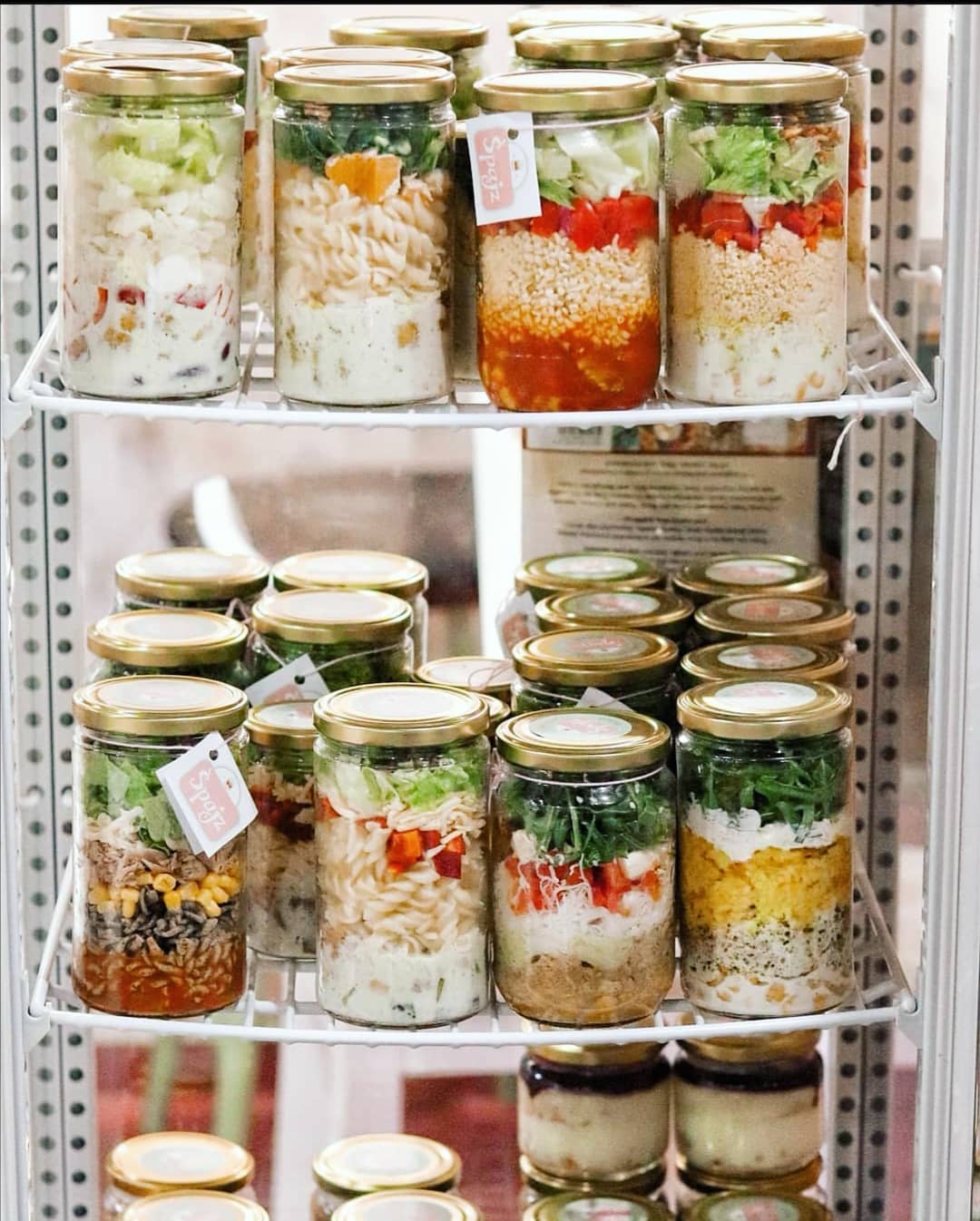
Martina's colorful jars of soup in Špajz / Photo: Facebook Špajz
However, before she ventured into entrepreneurial waters, Martina tried her luck abroad, more precisely in Ireland. It was great there, but she realized that Ireland's grass is not greener than Croatia's. Everything she could have there, she could have here.
"When you go to another country, you are always a foreigner, and it is difficult to achieve anything more. I always felt that I could make some bigger change and that I was not ordinary. My heart was drawn back home," said Martina and concluded that Slavonia is Slavonia.
'All things in Osijek fail'
At first, Martina even wanted to open a pastry shop, but she was afraid that she would fail because she was self-taught, so she and her parents recalled her jars of healthy food.
Three years ago, they co-wrote the project of today's Špajza, which was approved, and they got some money to start with.
"I received support for self-employment, and it was my initial capital and beginning. It was tough to open something of my own because I am not in that profession, nor do I have someone in my family who is a caterer. Besides, I decided to open a restaurant of healthy food in a sea of sausages and bacon," admitted Martina.

Martina presenting her healthy jars / Screenshot YouTube Startaj Hrvatska
At first, people did not take this young Slavonian seriously, mostly because of her whistling voice, but she soon proved that she has the will and desire to do and achieve something of her own.
"Some believed in me and were happy about me, and some told me that I should give up, that I would fail, because all things in Osijek fail," Martina told Nova TV.
Soups are better than bakery products
"Naruči, protresi, ustima prinesi "(translated as "Order, shake, bring to your mouth ") is the slogan of the Špajz, and Martina is happy to allow her fellow citizens to eat something healthy in Špajz, and not to go to the bakery.
"People buy my jars because they don't have the time to cook. The jar has no preservatives. Everything is natural. The vegetables come from local family farms, and there are no harmful substances inside," said Martina, adding that her soups are one complete meal in a jar.
"Soups have the longest shelf life, and I think everyone should eat something nice and healthy with a spoon," said Martina.
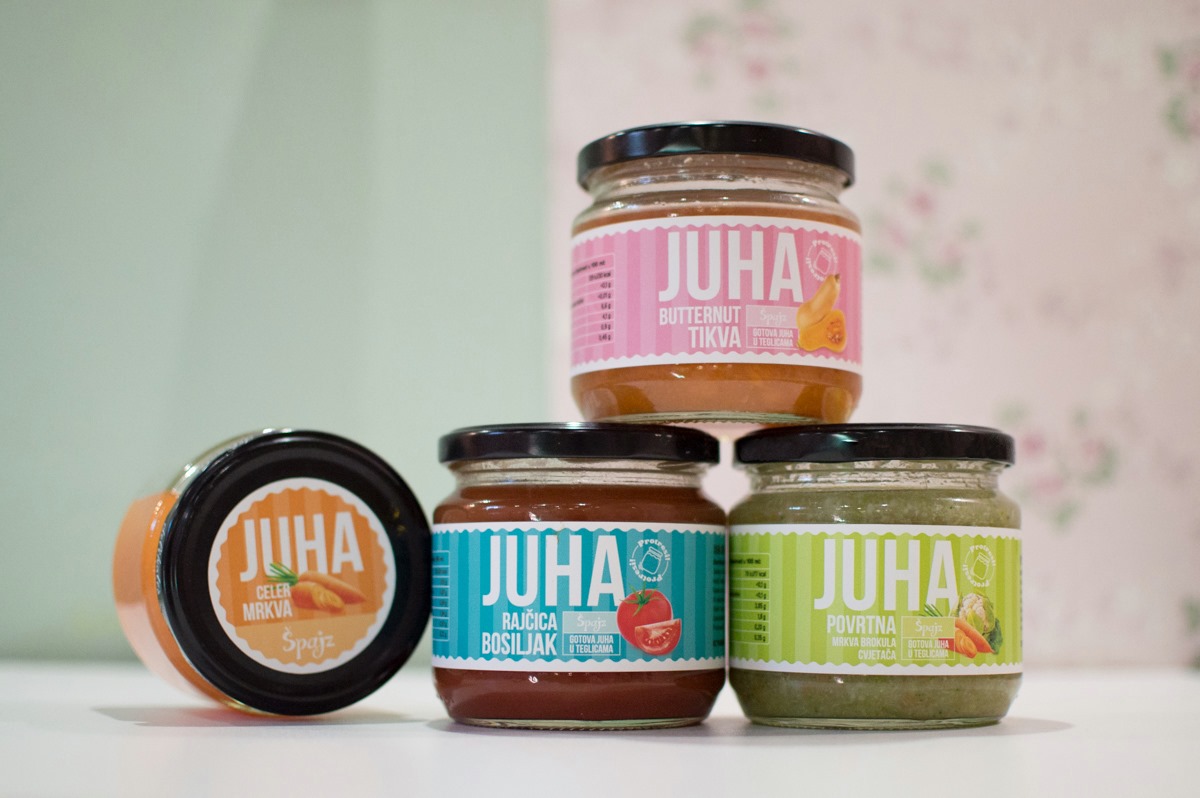
Photo: Facebook Špajz
Her soups are like light stews – low in calories, tasty, filling, and practical. In addition to fresh vegetables, these soups are made special by natural spices such as rosemary and basil, and olive and pumpkin oil are added to the soups.
All four types of soups are prepared according to a simple recipe. The menu includes vegetable soup of carrots, broccoli, cauliflower, butternut soup with basil and pumpkin oil, carrot and celery soup with olive oil, rosemary, turmeric. The latest in the offer is a tomato and basil soup with garlic, olive oil, and pepper.
The taste of these soups is irresistibly reminiscent of the fine home-made cuisine of Croatian mothers and grandmothers. It is not said in vain that soup heals both body and soul.
Family support most important
Along with these fine jars, coffee, smoothies, and squeezed juices can also be found on the shelves of the "pantry." This year, Martina also included fine Gugelhupf of seductive aromas of ginger, cinnamon, and orange in the Christmas offer. However, since Martina's catering business is currently closed due to epidemiological measures, all products are delivered to people's home addresses, and there is a possibility of pick up in Špajz.
Thanks to Martina's participation in the TV show Startaj Hrvatska, produced by Nova TV, her jars of soup became even more popular. Namely, the TV show helps such small entrepreneurs to place their excellent and innovative products on store shelves. Therefore, you can now find Martina's jars of soups in Interspar supermarkets throughout Croatia.
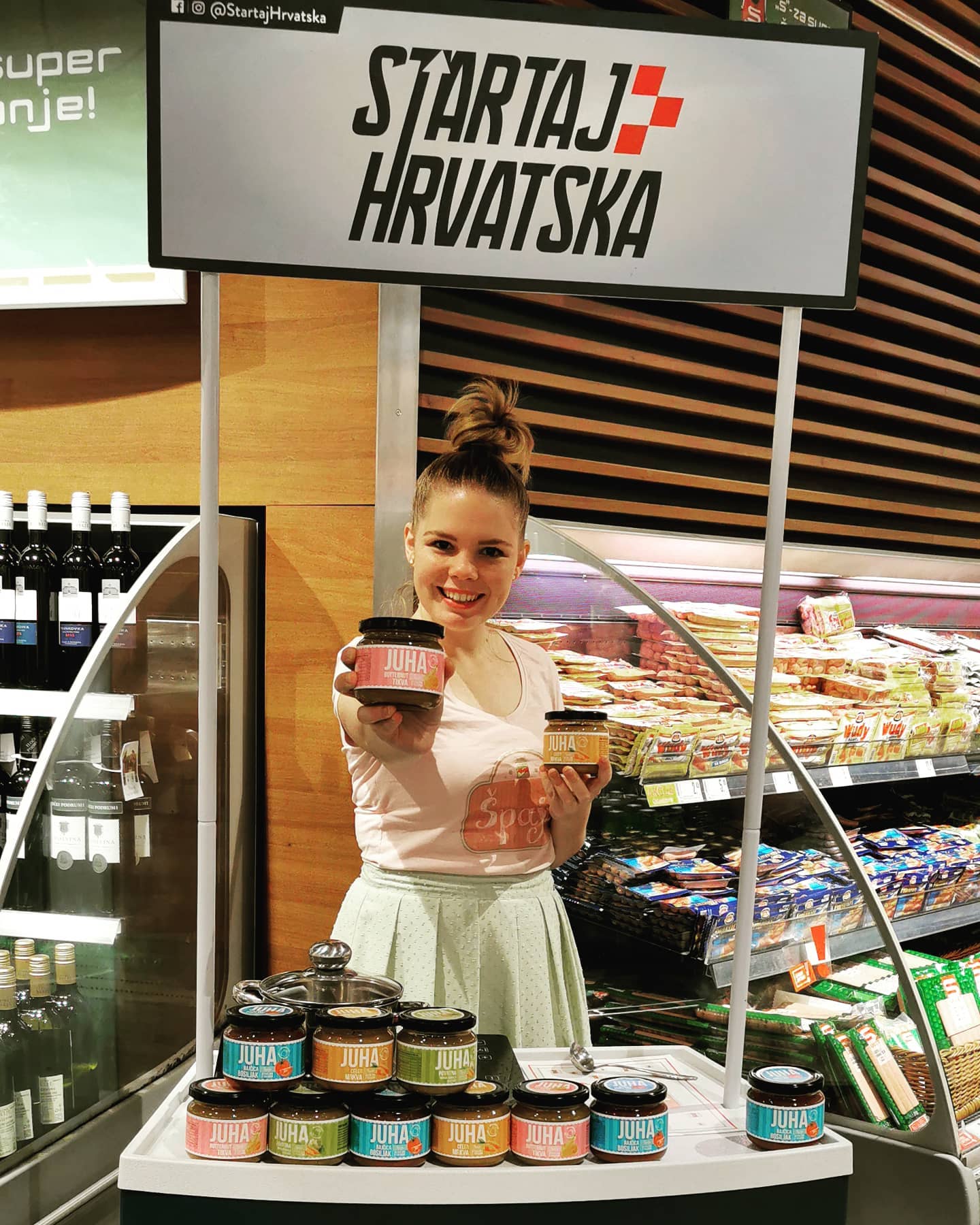
Martina and her jars of soup / Photo: Facebook page Špajz
"I stand behind my products because they summarize all my efforts and work," says Martina.
Špajz, as Martina says, is a finished whole. Of course, she always tries to design new products, and her further wish is to open Špajz in other cities of Lijepa Naša.
"I always dreamed of launching my products and Špajz to another city. At the moment, the opportunity has not yet opened up for me, but I am young, and I still have a lot of time," said Martina, adding that with the great help and support of her family, she is where she is today.
To read more news about Croatia, follow TCN's dedicated page.
Stories from the Diaspora: Moving from Osijek to Sweden
December 8, 2020 – Yesterday, TCN reported that Croatia is among the most sought after tourist destinations for people in Sweden. Today, we meet a couple who went the other way – from Osijek to Sweden – for a more permanent stay. How does life compare for young couple Marin and Vedrana?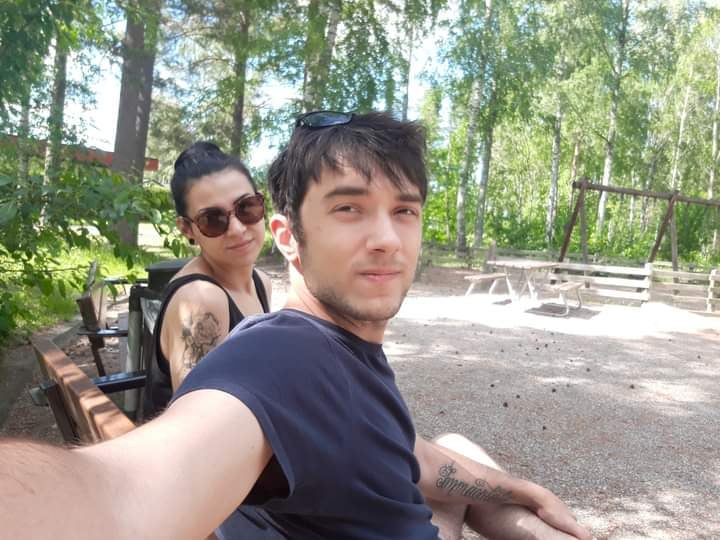
Marin Relja from Darda (25) and Vedrana Maksimovic from Sarvaš (24) swapped Slavonia for Västerås in June of 2019. We interviewed them to find out some of the ways life compares when you move from Osijek to Sweden.
Marin: We lived with parents when we were back in Osijek. A lot of the time we spent at Vedrana's parents, we had our own space there, which was great, but we didn't have total freedom. There were always quite a lot of other people around and when you are surrounded by family, certain responsibilities are put on you. It's much easier to live by yourself.
Vedrana: If we'd stayed in Osijek, probably we would have needed some support from our families so we could live together, independently. Here, we can do that by ourselves.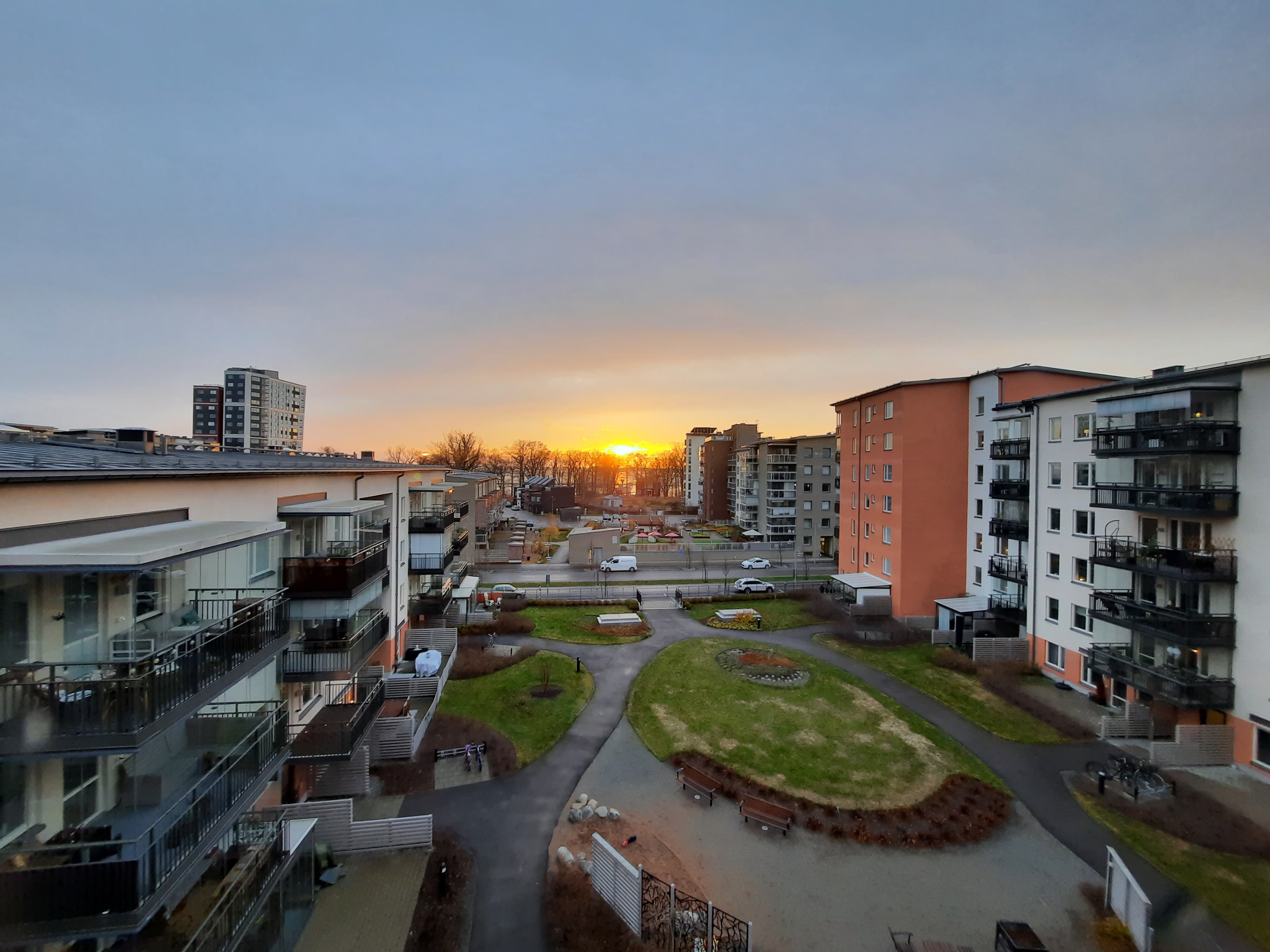 Marin and Vedrana's new neighbourhood, in Västerås, Sweden
Marin and Vedrana's new neighbourhood, in Västerås, Sweden
Why did you move from Osijek to Sweden?
Marin: There are lots of different reasons - opportunities, money, the church...It's cold. And there is a lot of snow. I like winter a lot more than summer. If it's cold, you can always put on more clothes. If it's too hot, what can you do?
Vedrana: I hate the winter and cold weather, actually. Marin wanted to come here. And my brother was already here. Maybe because it's totally different? Marin wanted to go to Ireland or Sweden. But, Ireland is a religious country, Catholic, like back home. We didn't want to live in another place like Croatia. I was here visiting, one year before we came, and it was -15. Freezing. Right now it's not so bad, around 4.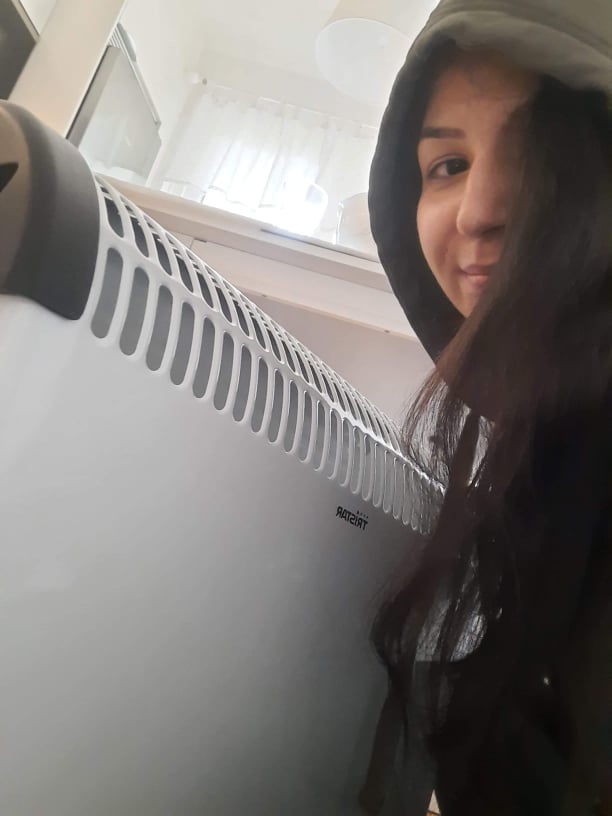
Vedrana doesn't like the cold. Marin's dream job is riding snowmobiles all day.
Marin: It can be -10 here but feel like -30 because the winds are sometimes very strong. Last winter wasn't so bad, but if you're on the windy side, it can feel really cold. I wear Christmas socks a lot. They're very warm. I have many pairs.
I saw you also have many pairs of papuče (slippers) by your front door. Why?
Marin: The tradition isn't going to die (Vedrana laughs). We brought that tradition with us from Osijek to Sweden. Most of them are for us, so we can wear different pairs, but some are for guests, although we rarely have any. We just have extra papuče that we don't use.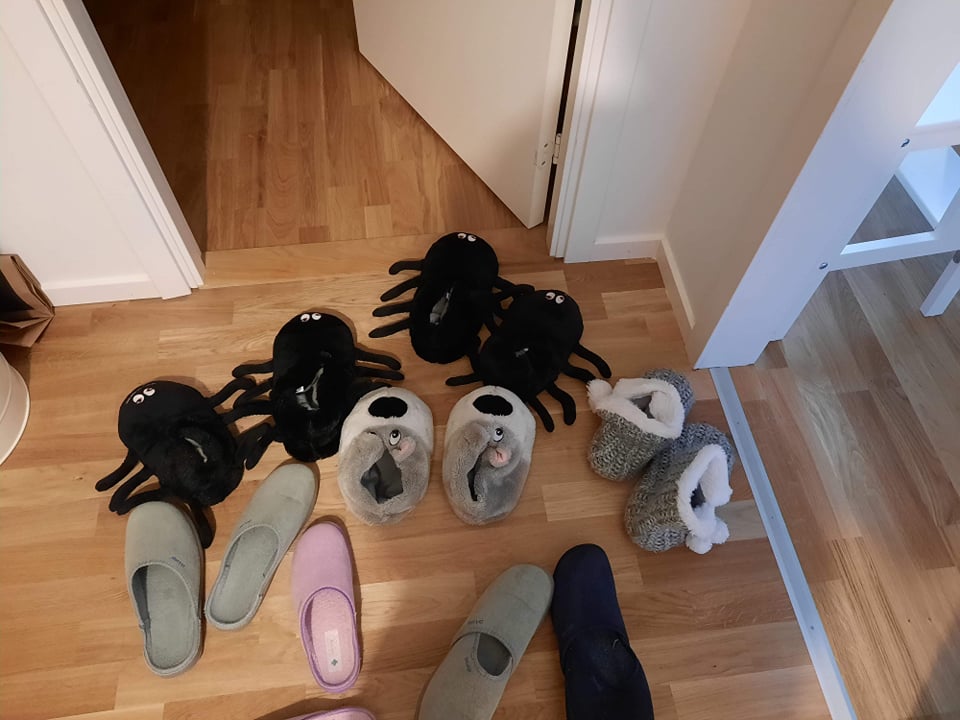 Croatians overseas: a tsunami of papuče
Croatians overseas: a tsunami of papuče
Vedrana: Our apartment here costs around 800 Euros per month. That includes water and payment for cleaning of the communal areas of the building. We pay extra for electricity, wifi and home insurance. Home insurance is mandatory. It costs around 100 Euros a year.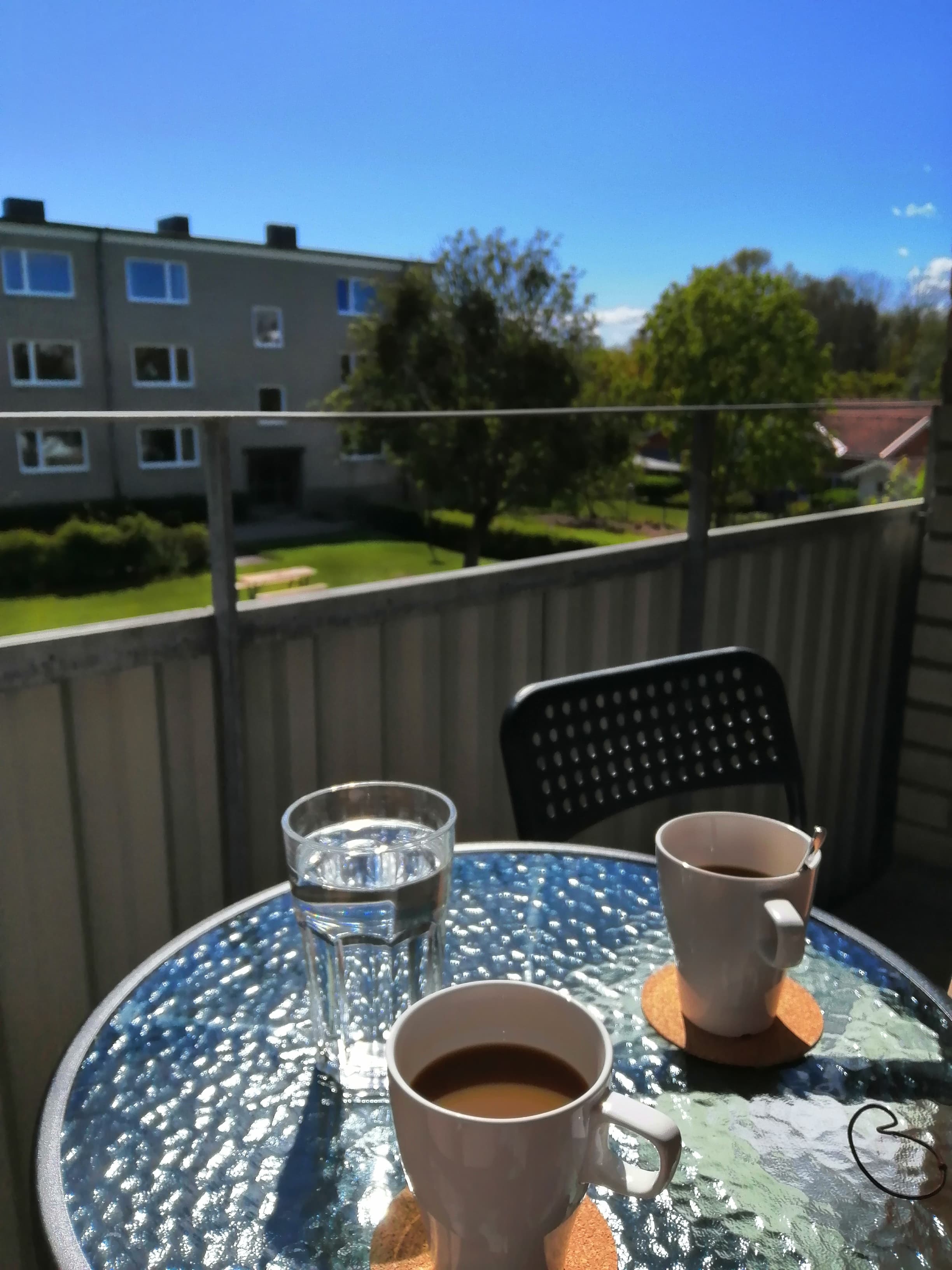
Marin: We came to Västerås because Vedrana's brother was here, but now he moved to another place. He helped us find an apartment when we first arrived. It's difficult to arrange an apartment from Osijek to Sweden with an agency - you actually have to be here. It's not something we could do online before we came.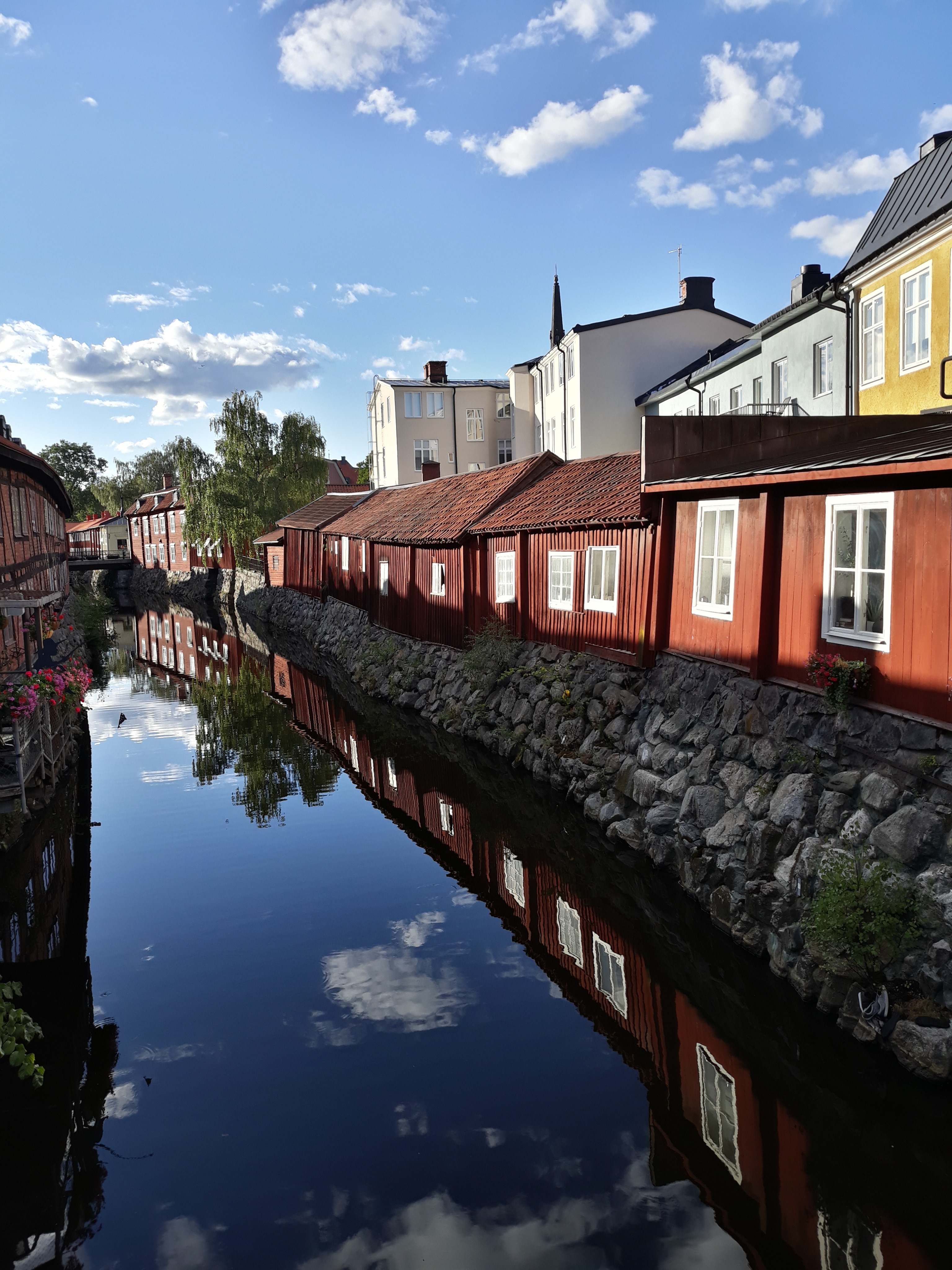
Vedrana: We were saving for around a year before we came, in preparation. We got around 30, 000 kuna. We spent it on travelling here, start up and the first apartment. My brother's wife worked in a company here and she made a recommendation for me and I started to work there. Then, I made a recommendation for Marin. Everything here is made with recommendations. Everything. Our company offers services. Anything you could think of. Home services, customer services. Sometimes you might be sent gardening, babysitting, fixing something in someone's home, painting a room, window or home cleaning, helping someone move house. Sometimes the client is a private individual, other times it's a company.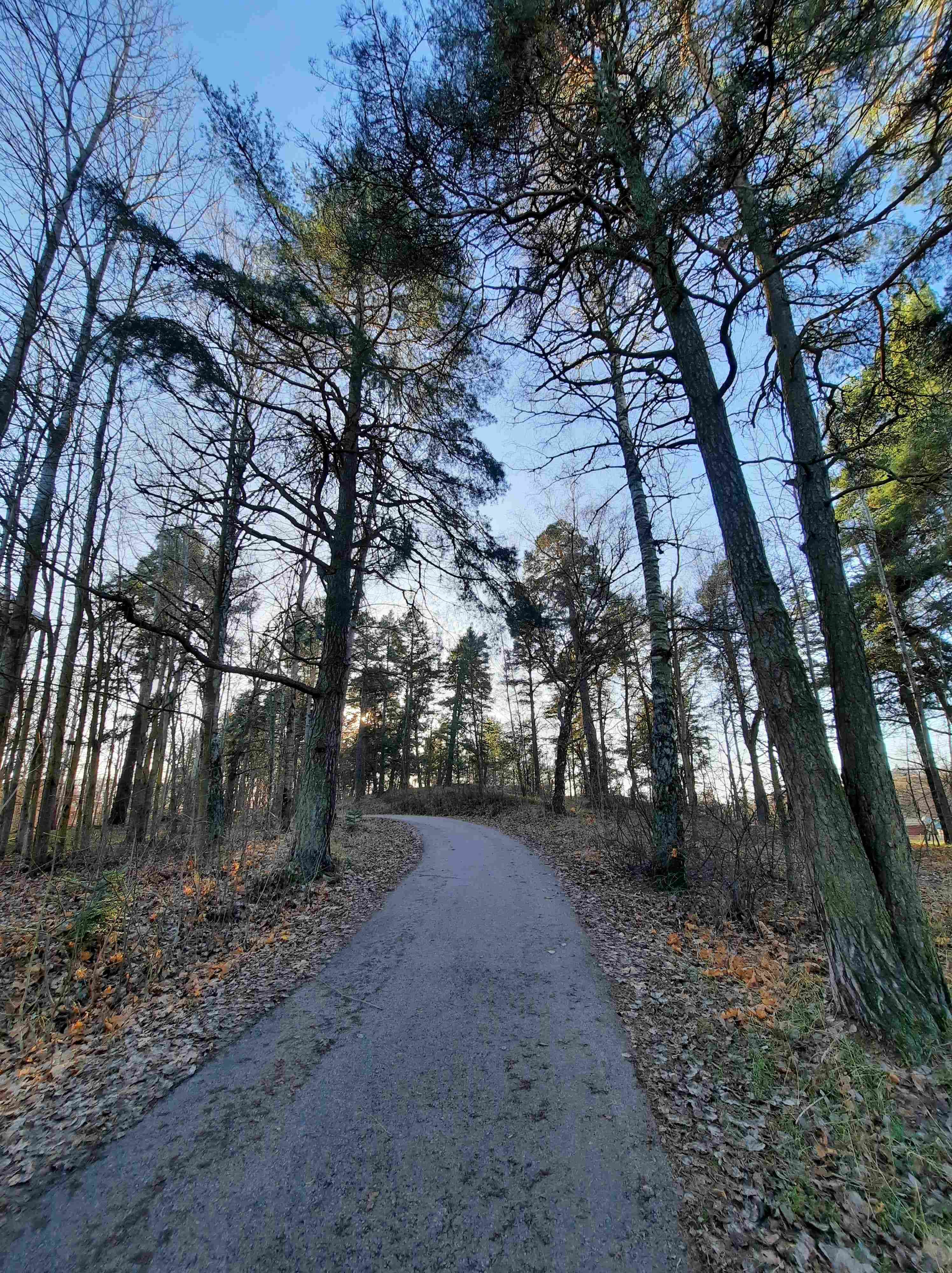
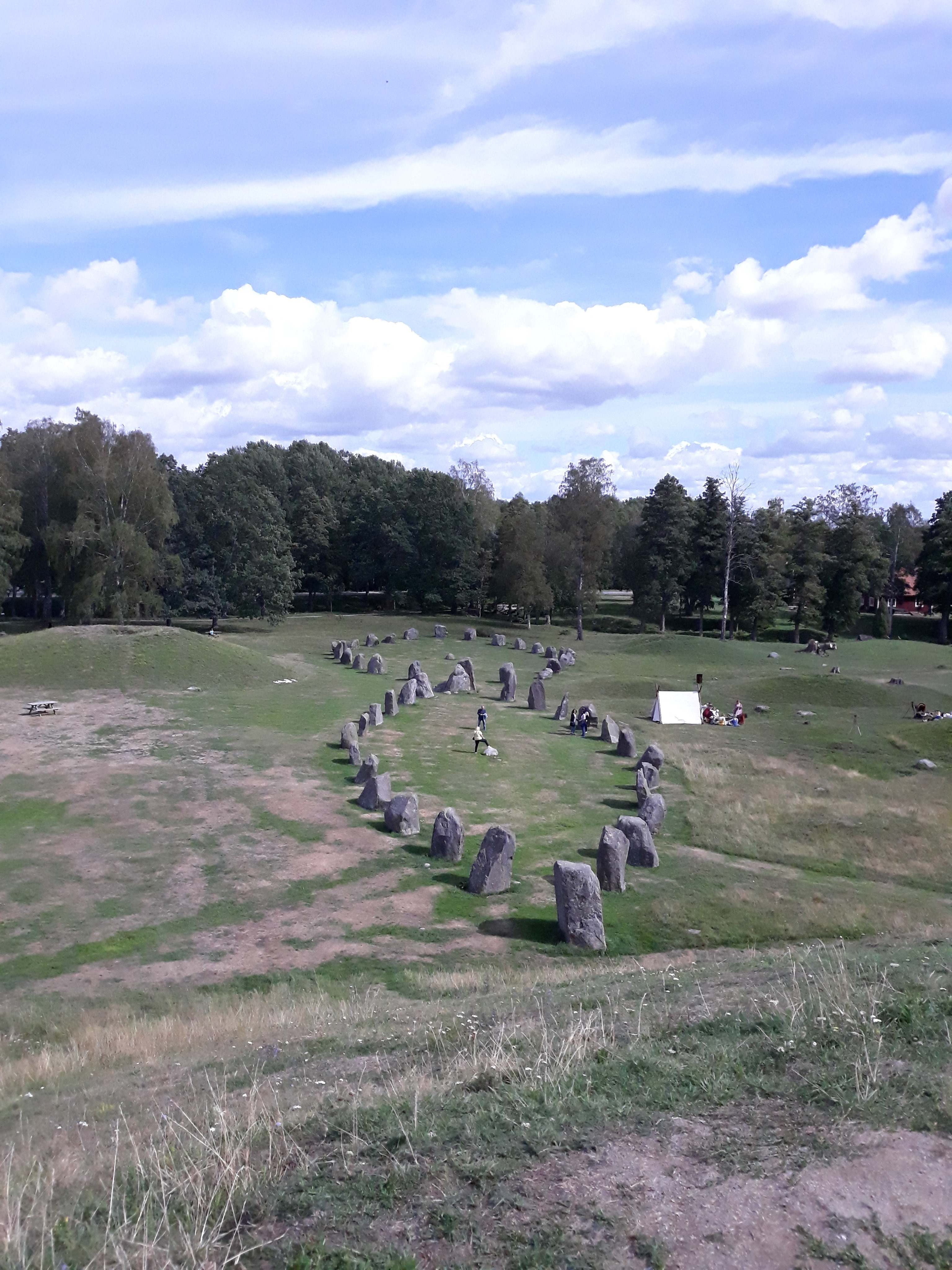 "We like going for walks here. The scenery is very different to Slavonia" Vedrana
"We like going for walks here. The scenery is very different to Slavonia" Vedrana
Vedrana: We don't work full time here. We work around 75% of a full-time job. So, it's part-time. But still we have enough money to live and much more than back in Osijek. In Osijek, for working in the store full time, I earned 400 Euros per month. As a waiter, Marin earned around 600 Euros per month, depending on tips. Here, after tax, we earn around 1200/1300 Euros each. Sometimes Marin earns more because he can drive and so he can be sent outside of the area to do jobs. He is paid for his driving time.
Vedrana: Around one week ago, I bought myself some boots for 200 Euros. I would never have been able to do something like that in Osijek. When we went food shopping in Osijek, we always went with a list. If you didn't have a big salary, like us, you have to count what you are spending. Here, we don't do that. If I see something that I like, I will buy it.
What jobs would you like to be doing there?
Marin: I would like to work as a graphics technician or as a waiter again. I like being a waiter, I like working in hotels. Of course, my dream job would involve driving a snowmobile all day.
Vedrana: I would like to be a care assistant, but I need to learn Swedish first and then go to school.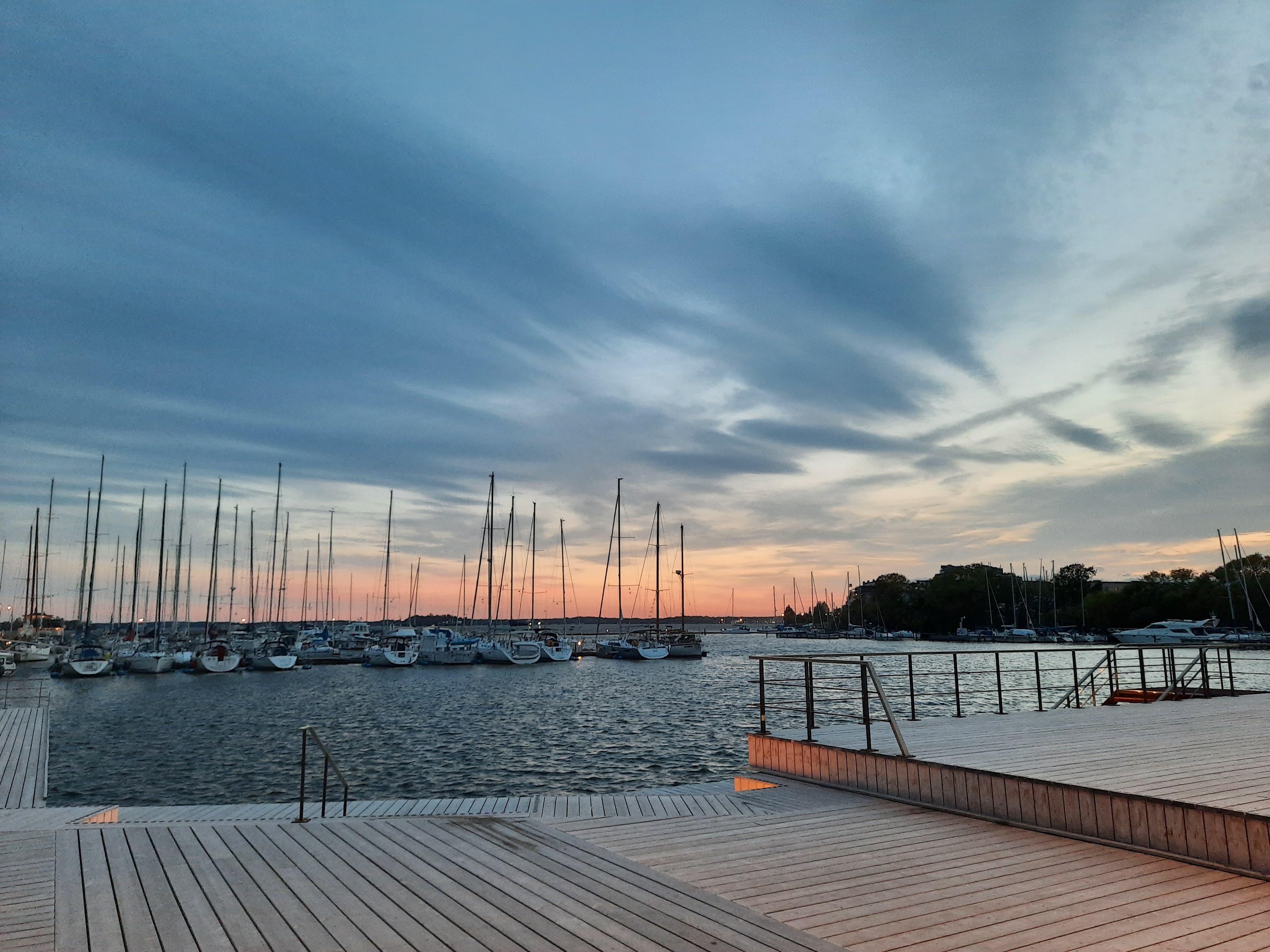
Marin: We had nothing when we arrived. We had two small chairs and we borrowed a thin mattress from her brother that we slept on. We bought pans, pots, plates, glasses and knives and forks first. Next, we bought a table and chairs. Then, we acquired a bed, we bought a sofa. After that, we stopped buying anything until we found an apartment that we could see ourselves living in for a long time. That's the one we are in right now, it's our third apartment here.
Did you meet any other people from the Balkans in Sweden?
Vedrana: Yes. I met a lady in an apartment agency. She took our ID details to check our backgrounds and when she saw our names, she said “Maksimovic? Where are you from?”, in English. When we said “Croatia”, she said “Pa mozemo i ovako pricati (well, we can talk like this)”. She was from Sarajevo. She came here 10 years ago. Another time, I went to a woman's apartment to work for the day. As a client, she already had my name and details. When she opened the door, I said hello and asked if she spoke English. She replied. “Možemo pričati na našem”. Her name is Elena and she is from Belgrade. We still see her sometimes, she is nice. She's been here around 20 years.
How difficult it is to learn Swedish?
Vedrana: It's really hard.
Marin: It's easy. I started when we were still in Croatia, just to get some basics. A few months ago, we started school. I learned English and German in both elementary and secondary schools. You can see the associations of those languages with Swedish.
Vedrana: The accent is difficult. You must make different sounds with your mouth than we have in Croatian. It's a very beautiful language when you hear it. It's not like German.
Marin: They sound funny when they talk. It sometimes sounds like they are singing.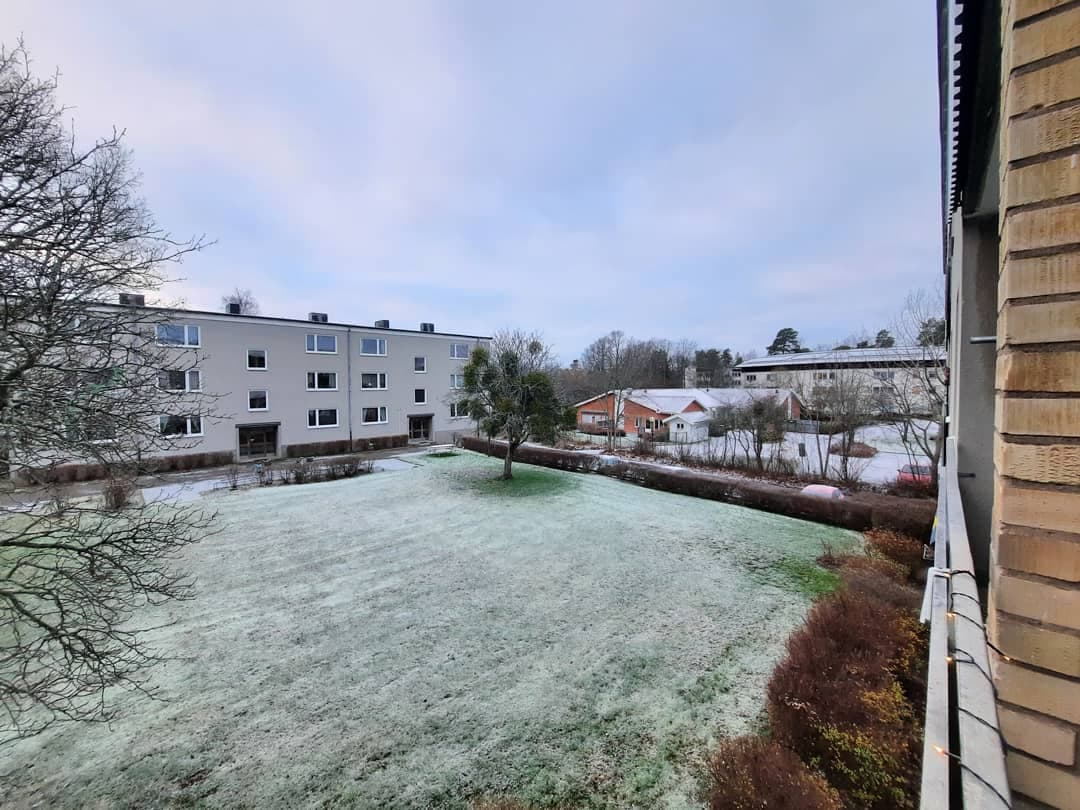
Would you move to a different city in Sweden if the right job opportunity was offered to you?
Vedrana: Yes. I would like to go to Gothenburg or Stockholm. It's more urban there, more to see and do, and more opportunities.
Marin: I would like to go to the north of Sweden. It's even colder and more remote there. And more snowmobiles. But, they only do mining there, and I don't know how to mine, so I'm not sure if I could find something there.
How different is the food in Sweden?
Vedrana: We don't eat meat, so we got used to cooking for ourselves at home before we moved from Osijek to Sweden. So, we haven't noticed a big change in what we eat. We do both eat fish. The kinds of fish you can buy here are really different. We sometimes eat salmon steaks. You never really saw those much in Osijek. Salmon is not so expensive here like it is in Croatia. "In the summertime, it is light all the time. The sun comes up around 3am and stays up until 11pm, but there is light all the time. I like it. I don't have trouble sleeping through it. Marin did, at first. In winter, there is no sun. It gets lighter around 9am and that lasts until around 3pm. But, there is no sun. It's like that from late October until March" Vedrana
"In the summertime, it is light all the time. The sun comes up around 3am and stays up until 11pm, but there is light all the time. I like it. I don't have trouble sleeping through it. Marin did, at first. In winter, there is no sun. It gets lighter around 9am and that lasts until around 3pm. But, there is no sun. It's like that from late October until March" Vedrana
Marin: People are a lot calmer here. Driving is different. There are not so many cars on the road in Osijek, but here, nobody sounds their horn at you or sticks their middle finger up at you because they don't like the way you drive. Nobody seems to be in a rush.
Marin: Alcohol is expensive here if you go to a bar or club. In Osijek, you pay maybe double the price for beer in a bar that you would in the supermarket. Here, the beer you buy for 15 kronas in the store you would pay 70 kronas for in a bar. But, it's not so expensive to go out if you work full time.
Vedrana: Here, you cannot buy alcohol in a store or a supermarket like back home. You have to go to the special Systembolaget store to buy it. You must be 20 years old, it closes at 8pm in the evening, it closes at 3pm on Saturday and is closed on Sunday.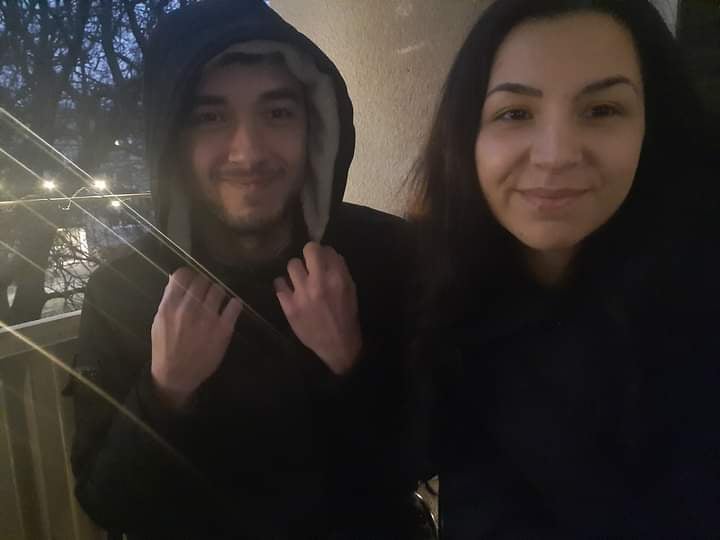
Marin: When you move from Osijek to Sweden, you can meet people from all over the world. It's not like Slavonia. We have neighbours from India. We speak together in English. We have a friend from Sri Lanka. I met a guy at work who is from Africa.
Do you ever regret moving from Osijek to Sweden?
Marin: Not sure yet. We don't regret it, but sometimes we feel nostalgic. But we realise that is amplified by this COVID situation – there's just not been any opportunity to travel back home and visit family and friends.
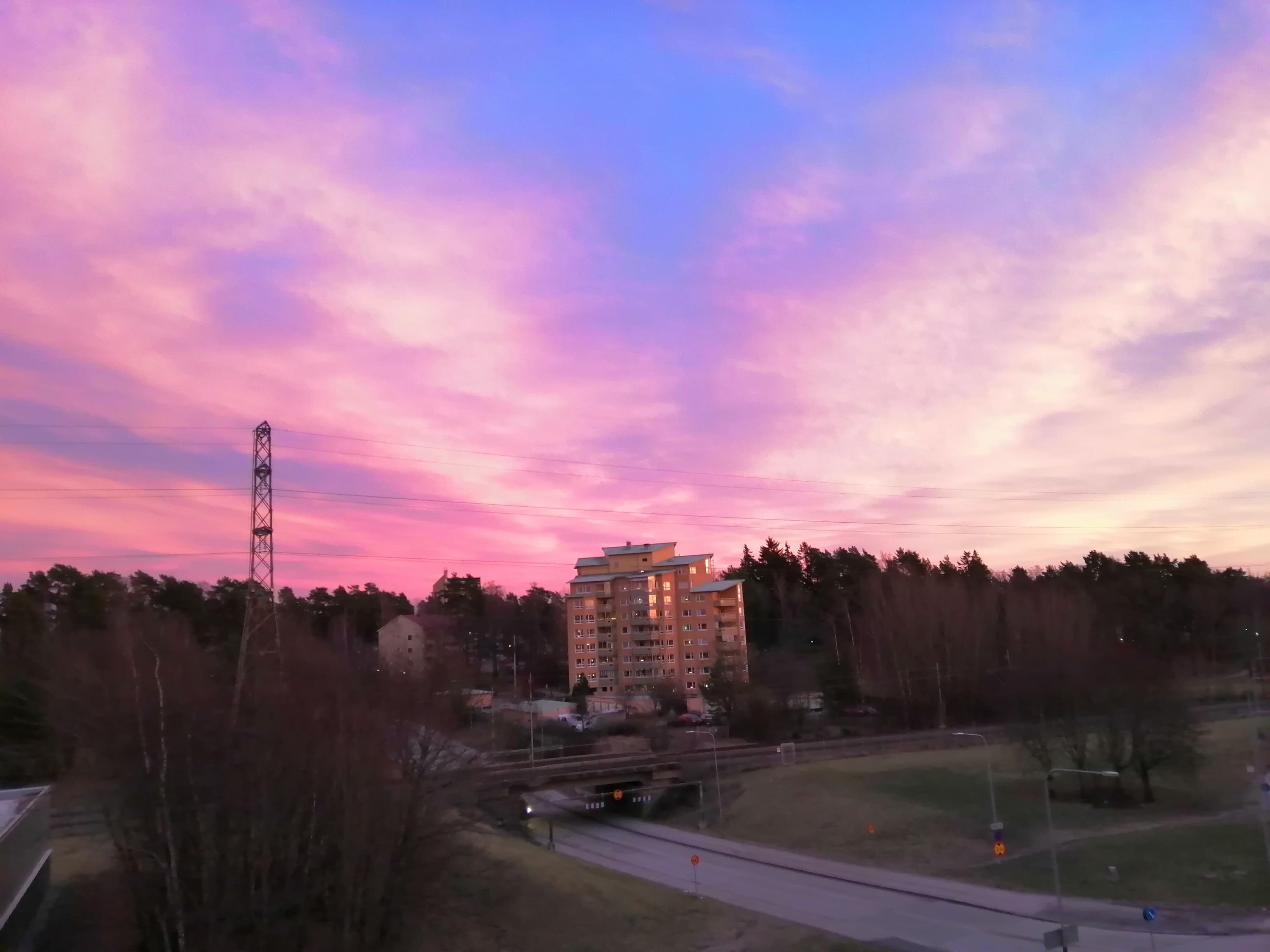
Croatian Footballer Darijo Srna Donated to Croatian Hospitals
December 1, 2020 – Former captain of the Croatia national football team Darijo Srna and the company Enna Fruit organized the delivery of mandarins to six Croatian hospitals.
As 24sata reports, former Croatia football player Darijo Srna (38) donated 15 tons of mandarins to hospitals in Zagreb, Split, and Osijek. In cooperation with the company ENNA Fruit, which organized the delivery of fruit, Srna delighted patients and staff, which was confirmed from the hospital in Split.
In addition to Srna's donation, the company ENNA Fruit also donated two integral disinfection systems that will be used in the hospital in the Zagreb Arena.
"In challenging times, when we are all facing the COVID crisis, it is important, within our capabilities, to be supportive of those who need it most," said Darijo Srna on the occasion of this humanitarian donation, which, as he says, went to the right hands – in KBC Sestre milosrdnice, KBC Dubrava, KBC Rebro, Clinic for Children's Diseases in Zagreb and KBC Split and KBC Osijek.
"Integral disinfection system is an advanced device for measuring body temperature, disinfection of hands, and footwear with the help of a disinfection mat. This device will provide healthcare workers, doctors, and nurses with a safer stay in the hospital and facilitate the daily fight against the SARS-CoV-2 virus, the causative agent of COVID-19 disease," they said from the ENNA Fruit company as reported by Rogotin.hr.
Darijo Srna has long been known for humanitarian actions, such as the one in 2014 when he bought 20 tons of mandarins, paid for transportation, and donated them to children in Donetsk who were affected by the horrors of war.
"I'm not doing this to have someone say to me: 'Well done, Dario.' This is from the heart and soul of all citizens of Donetsk," said Darijo Srna then.
To read more news from Croatia, follow TCN's dedicated page.
HNL Round 13 Recap: Rijeka and Osijek Draw at Rujevica
November 30, 2020 - The 13th round of the Croatian First League was held from November 27 to 29, 2020. This round saw Rijeka and Osijek draw, while the highly-anticipated Eternal Derby between Dinamo and Hajduk was postponed.
Sibenik v. Slaven Belupo (0:3)
Sibenik and Slaven Belupo opened the 13th round on Friday, November 27, 2020, in Sibenik.
A goal in the first-minute by Lulic gave Belupo the early 0:1 lead. Thirty minutes later, Etoundi increased Belupo's lead to 0:2, which was the score at the half. The final goal of the match was scored in the 80th minute by Knoll, for the 0:3 Belupo victory.
Sibenik is currently in 7th place with 13 points, while Belupo is in 6th place with 14.
Varazdin v. Istra 1961 (1:1)
Varazdin and Istra met on Saturuday, November 28, 2020, in Varazdin.
While the first half went without goals, Obregon was the first to score for the Varazdin lead in the 51st minute. A penalty for Istra in the 7th minute of added time was scored by Grzan for the equalizer and final 1:1 result.
Varazdin is currently in 9th place with 9 points, while Istra is in 10th with 9 points.
Gorica v. Lokomotiva (1:1)
Gorica and Lokomotiva met on Saturday, November 28, 2020, in Velika Gorica.
Lovric put Gorica in the lead in the 13th minute for 1:0 at the half. Tuci scored the equalizer in the 50th minute for the final 1:1 result.
Gorica is currently in 3rd place with 23 points, while Lokomotiva is in 8th place with 9.
Rijeka v. Osijek (1:1)
Rijeka and Osijek closed out the 13th round at Rujevica Stadium on Sunday, November 29, 2020.
While the first half went without goals, a double-yellow for Pavicic forced Rijeka to play with a man down from the 60th minute. However, Andrijasevic scored for Rijeka just four minutes later for the 1:0 lead. An 83rd-minute equalizer by Bockaj ended the game 1:1.
Rijeka is currently in 5th place with 16 points, while Osijek is in 1st with 27.
You can see the full HNL table HERE.
To read more about sport in Croatia, follow TCN's dedicated page.
Philosophy Faculty Osijek Croatia's First To Welcome Students' Dogs
November 29, 2020 – With most of the staff being dog owners, Philosophy Faculty Osijek has made the decision to become the first university institution in Croatia to which students can bring their pet dogs
The singular city of Osijek is well known for many reasons – the fantastic food of Slavonia and Baranja, the spectacular Old Town of Tvrđa, the Drava river along which the city stretches, one of the current top teams in the national football league and a university that produces excellent graduates in many different subjects, not least computer sciences.
In 2020, Osijek University has been earning a name for itself among the dog-lovers of Croatia. Ivana Kramer, a dog-owner and dog shelter volunteer, this year became Croatia's first animal rights lawyer after graduating from the Faculty Of Law at Osijek University. And Philosophy Faculty Osijek stands as the only such institution in Croatia that students can come to with their pet dogs.
“The decision to become pet friendly was made by the Faculty Council, and according to these rules, animals entering the building must be accompanied by their owners, on a leash or in a transporter,” Vice-dean of Philosophy Faculty Osijek, Milica Lukić told Jutarnji List journalist Zrinka Korljan in an interview published 27 November. “Also, the owners at the gatehouse report the animal they are entering with, say how long they intend to stay and show an ID card. When leaving the building, they report to the gatehouse again so that we have information that the pet has left the faculty space.”
Philosophy Faculty Osijek has been allowing dogs to attend for two years now. Pets can't actually go into class with their student owners, but they can accompany them to the library. During lectures, the dogs have their own space where they can wait. Water and dog food is provided at the faculty entrance.
Other reasons prompting the decision to open the Philosophy Faculty Osijek to pets were that most of the staff were dog or cat owners and that it was noticed attendees who made short visits to the faculty were forced to tie up their dogs outside. Though the Jutarnji List interview also mentions cats in addition to dogs, no mention is made of provisions for students with more exotic pets such as snakes or tarantulas. Perhaps that's going a little too far. Being the only faculty in Croatia that welcomes dogs is maybe good enough for now.


